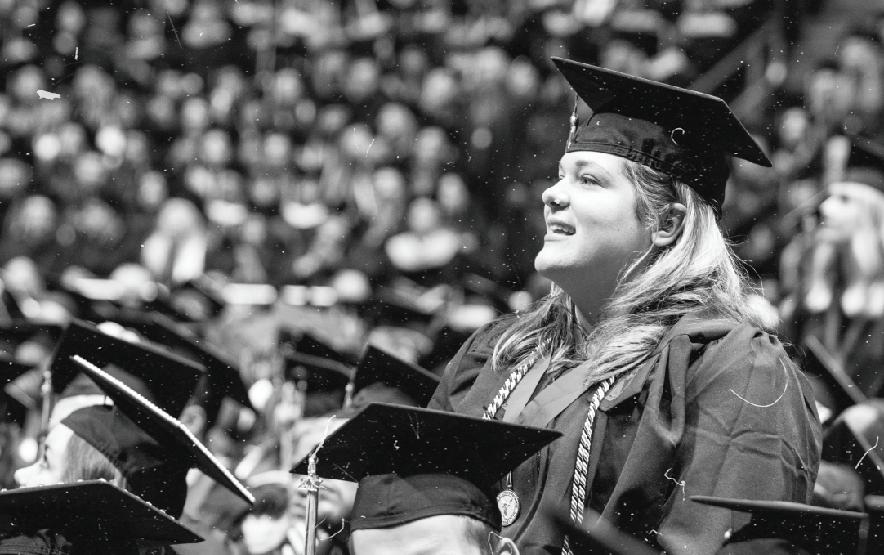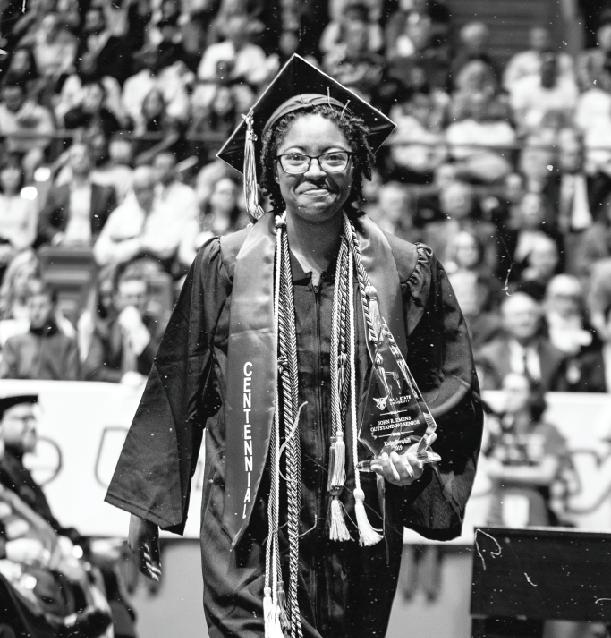‘Bearing Through Art Witness’



The Ball State University Fashion
Association
OUTreach

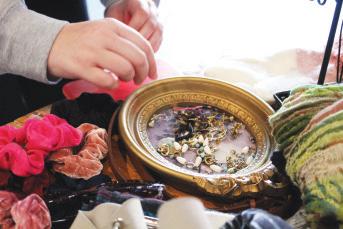

Burko, an artist featured in the latest David
Museum of
uses
to educate on
Did



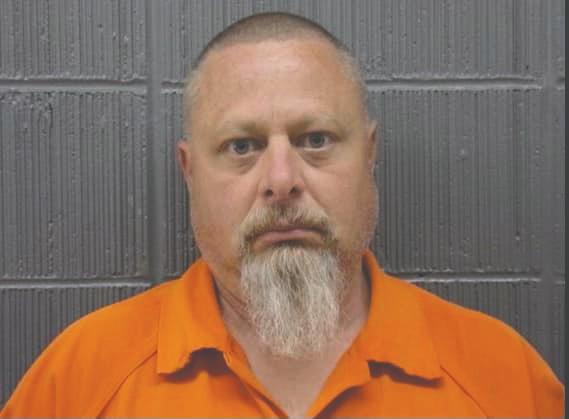
Oct. 30: Indiana State Police Superintendent Doug Carter announced Richard Matthew Allen was arrested last week for the murder of Liberty German and Abigail Williams. Allen was charged with two counts of murder. Williams and German disappeared Feb. 13, 2017, while they were hiking in Delphi, Indiana. Their bodies were found the next day.
Print Managing Editor Evan Chandler did Associate News Editor Hannah Amos’s makeup for reaching $100 in donations for The Daily News travel fund!
Sarah Mahnesmith placed 29th overall, the highest for Ball State, running a personalbest 21:32.9, while Vivian Van Eck finished 45th with a 22:14.5 time. The Cardinals had four runners finish with personal-best times with Mahensmith, Sarah Greer, Jocilyn Stackis and Autumn Spence each setting new personal records.
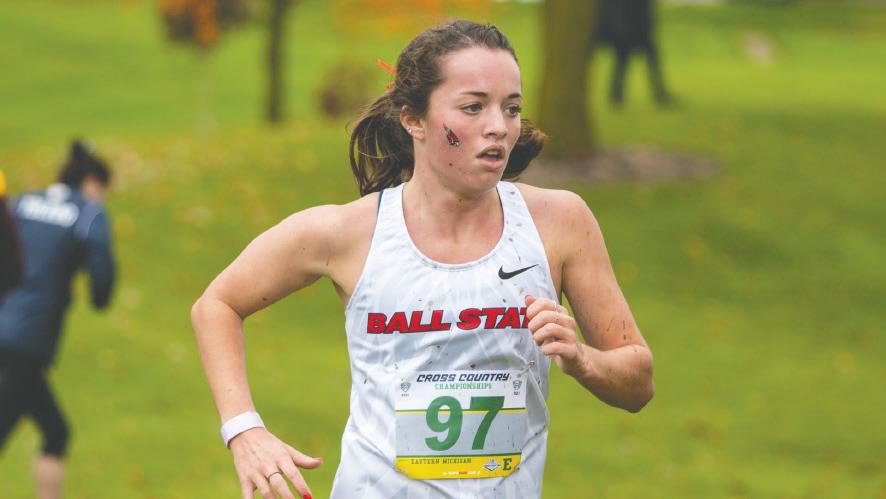
Nov. 1: First-year forward was named Mid-American Conference (MAC) Freshman of the Year as four other Ball State Soccer players were named to All-MAC selections. Third-year midfielder Avery Fenchel, second-year forward Lexi Fraley, third-year defender Abby Elgert and fifth-year defender Lexy Smith were all recognized.
The Daily News offices are in AJ 278, Ball State University, Muncie, IN 47306-0481.
postage paid in Muncie, Indiana.
TO ADVERTISE Call 765-285-8256 or email dailynewsads@bsu.edu between 8 a.m. – 5 p.m. Monday - Friday or visit ballstatedaily.com/advertise.
TO SUBSCRIBE
the
Daily
MOSTLY SUNNY Hi: 70º Lo: 51º

Call 765-285-8134 between 9 a.m. – 3 p.m. Monday - Friday. Subscription rates: $45 for one year. POSTMASTER: Send address changes to The Daily News, AJ246, Ball State University, Muncie, IN, 47306.
TO DONATE Visit BallStateDailyNews.com.
The print edition of The Ball State Daily News on October 27 incorrectly stated the role of one of our sources for a lifestyles story. Jenni Marsh is a Ball State alumna, not a Ball State educator.
To submit a correction, email editor@bsudailynews.com.
PARTLY CLOUDY Hi: 73º Lo: 55º
FRIDAY CHANCE OF RAIN Hi: 70º Lo: 48º
SATURDAY PARTLY CLOUDY Hi: 67º Lo: 48º

SUNDAY
THIS WEEK: The above average temperatures will continue for the end of the week and into the weekend. Shower chances creep into the area Friday night and into Saturday, but overall, another pleasant fall weekend.


Waking Up with Cardinal Weather is Ball State University’s first and only morning mobile show focused on getting your ready for the day through local news, weather and lifestyle trends. Waking Up with Cardinal Weather airs every Friday morning at 8 a.m. at @cardinalwx live on Facebook.









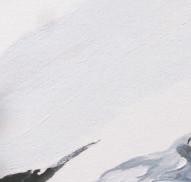







The David Owsley Museum of Art (DOMA) has assembled an exhibit of recent loans and acquisitions running from Sept. 29-Dec. 22, featuring a piece by artist and activist Diane Burko, an artist of more than 50 years.




Burko said she considers herself a “political animal” and has a lot of passions when it comes to social and political change, including being antiwar, a feminist and a climate change activist in this century while still holding an interest in the former.
Beginning in 2006, Burko gained an interest in climate change. As a landscape artist, it felt like a no-brainer.


“For the first time as an activist, I have to say … this cause, this issue, is something that I’ve been able to fold into my art practice,” Burko said.


This passion for climate change is what struck museum director Robert La France.

“She had a very important exhibition at American University in Washington, D.C., last year, which is where I saw some of these works,” La France said. “We really fell in love with her work and her passion about climate change.”
Burko highlighted one effect of climate change in particular, rising ocean levels and melting glaciers, in her piece in the museum. Dr. Amy Gregg, associate professor of environment, geology and natural resources at Ball State University, explained the science behind the issue.
“Not only is the atmosphere warming, but the oceans are warming, which then can release more carbon dioxide into the atmosphere,” Gregg said. “As the oceans are warming, the ice caps and glaciers are melting, which raises the level of the ocean.”
Burko, while always aware in some capacity of these issues, began implementing them in her work around 2006, understanding something had to be done.



“It sort of all came together for me, and I realized if indeed I’m someone who is out in nature and appreciates the awe-inspiring, amazing world out there and the natural landscape, I realized that it was being threatened, and I figured I had to do something about it,” she said.
One way Burko uses her art for activism is to utilize audience engagement and her own voice to talk about the issues. In fact, she makes a requirement whenever she is in any kind of exhibition for public engagement. Her exhibit at Ball State is no different as she came on Oct. 13 for a public lecture.
This awareness is something to be implemented in the lives of the public, which is what many activists are pushing towards.
“Transportation alternatives would be a big one,” Gregg said. “Putting pressure on Congress for more energy efficient technologies, investing in alternatives to fossil fuels, supporting local food movements so that not all of our food has to be shipped from California … that’s a lot of carbon impact. The things that we buy as consumers relate to the use of materials and the production of greenhouse gasses and fossil fuels.”
Burko’s piece at the DOMA is from 2013 and is one of many of her pieces that focuses on climate change.
“I have been able to visit and bear witness to these issues that are affecting us, …” Burko said. “I’m now painting about the Amazon rainforest in South America, … I’m working on getting there to, again, bear witness. That’s what they’re about. They’re about bearing witness, and that’s the link to my project in terms of climate change.”


Contact Madelyn Bracken with comments via email @madelyn.bracken@bsu.edu.

and I figured I had to do something about it.”
- DIANE BURKO, Artist and activistAntarctic Dream #1 by Diane Burko. ALEX BRACKEN, DN Paradise Channel, Lemaire #3 by Diane Burko. MYA CATALINE, DN The David Owsley Museum of Art stands in the sunlight Nov. 2. ALEX BRACKEN, DN
On Oct. 26-28, Ball State University students mingled inside the Warehouse below the Village Promenade, sifting through clothes to find something they like. Students could find all types of clothes — all thrifted and chosen by Ball State’s Fashion Merchandising Association (FMA) members.
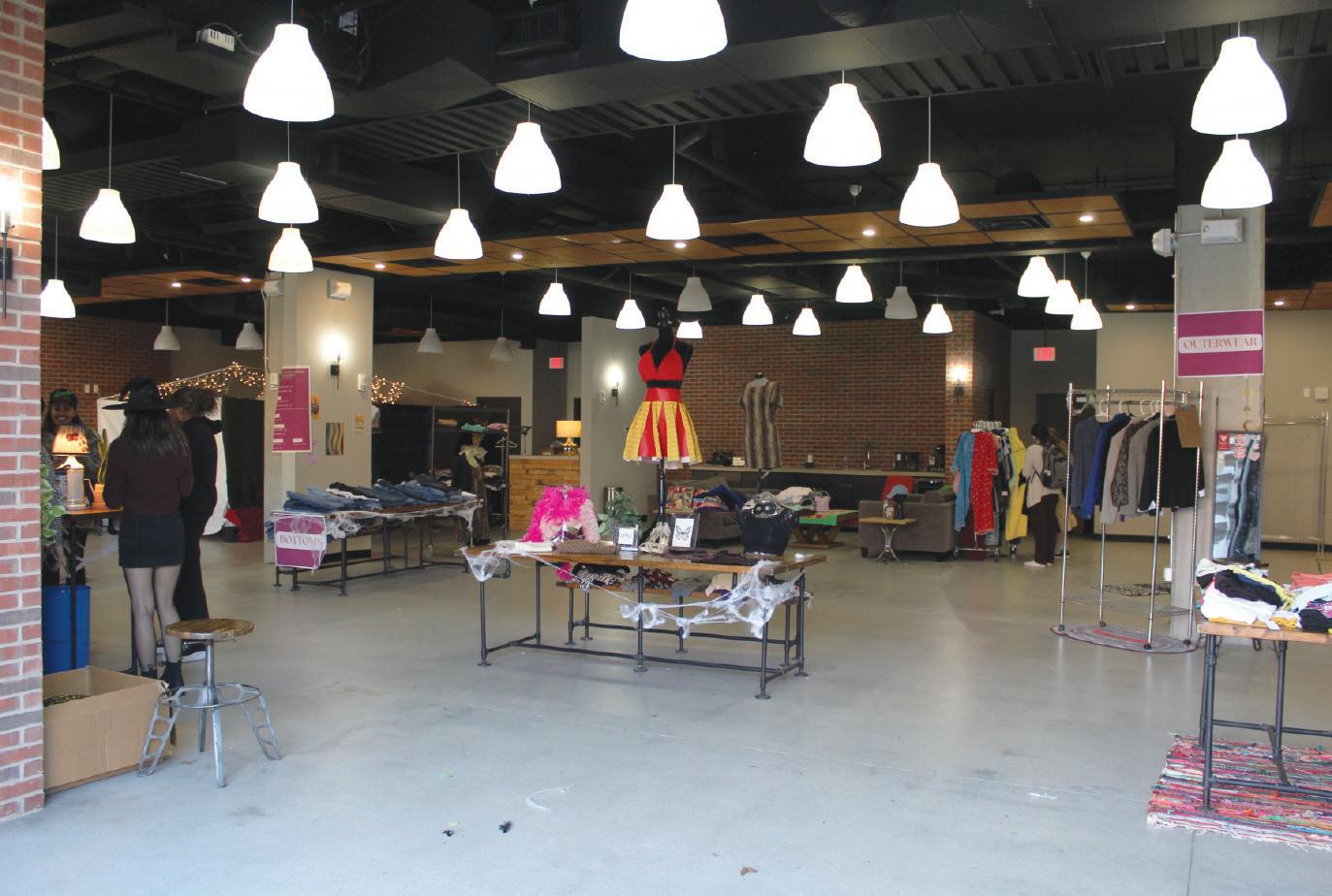
Maureen Kirk, Ball State third-year fashion merchandising major and FMA president, said hundreds of students attended, and she described the pop-up shop as “chaotic but so amazing.”
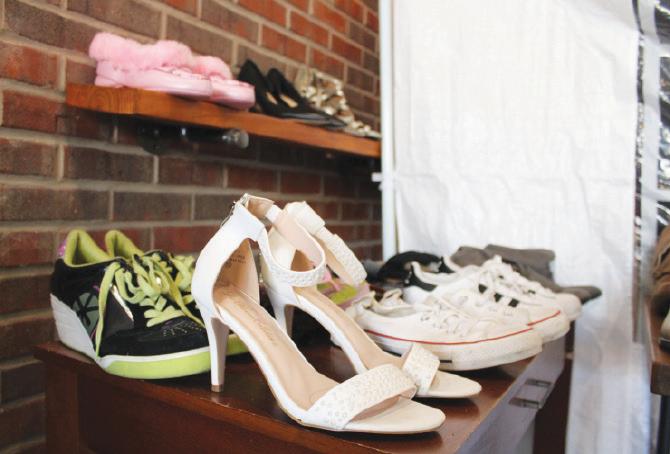
“One of our biggest events for fundraising is the pop-up shop,” Kirk said. “This event is basically where we gather a bunch of clothing from people around campus and our family and friends, and we create a fully functioning retail store.”
I love it so much. It’s a great way to shop sustainably, and it’s close … and they have cute things donated by a lot of other college students.”
expecting around 600 customers. At the end of the day Oct. 28, the organization saw 500 customers in three days and raised $2,500.
Prior to the shop’s opening, Jessica Wolfe, third-year fashion merchandising major and FMA’s National Retail Federation student ambassador, was most excited to interact with customers and help them find clothes they love.
“I look forward to seeing their reactions to what we’ve done and what we’ve worked towards,” she said. “I’m also looking forward to seeing the setup and how customers are going to interact with it.”
Due to the COVID-19 pandemic, FMA could not host the pop-up shop at its current level until 2021. Prior to then, it was held in the Atrium on campus. While this was the organization’s second year hosting the event in the Village, Kirk said there were some major differences from last year.
“Last year, it was a very fast turnaround for setup because we found out pretty late into the semester that we were going to be able to do it,” she said. “This year, it’s been a lot better because we had packed an outline of what we did last year. We carried over a lot of things we did, which made it easier, especially if you already know about the space.”
Club members began setting up for the three-day event the day before it opened, and Kirk said they ran into “some bumps in the road” but were able to easily open the pop-up shop Wednesday.
Jakota Fisher, second-year fashion industry studies major, was one of the customers at the pop-up shop and said he enjoyed it so much, he came back a second time.
“It’s a great way to shop sustainably, and it’s close,” he said, “and they have cute things donated by a lot of other college students.”
During his visits to FMA’s pop-up shop, Fisher bought two sweaters, two shirts and three tank tops. He heard about the event from his friends who are involved in the organization. He also said he lives in the Village Promenade, so it was convenient for him to support the club.
While Kirk considers the shop a success, it was not without its challenges. The biggest issue with the shop was getting the WiFi to work, which they needed to utilize their payment services. Once they overcame that, she said everything went smoothly.
Kirk said she and her fellow FMA members heard positive reviews from a lot of the customers.
“This really just helps FMA because we are able to show people that thrifting is a good option and also that the fashion merchandising program exists,” Kirk said, “and that we can be bigger than what we might be known for on-campus.”
Wolfe believes FMA’s members have backgrounds that helped the pop-up shop succeed, specifically with jobs they’ve worked before. She said the majority of their members have worked in retail but never in the position they had with the three-day store.
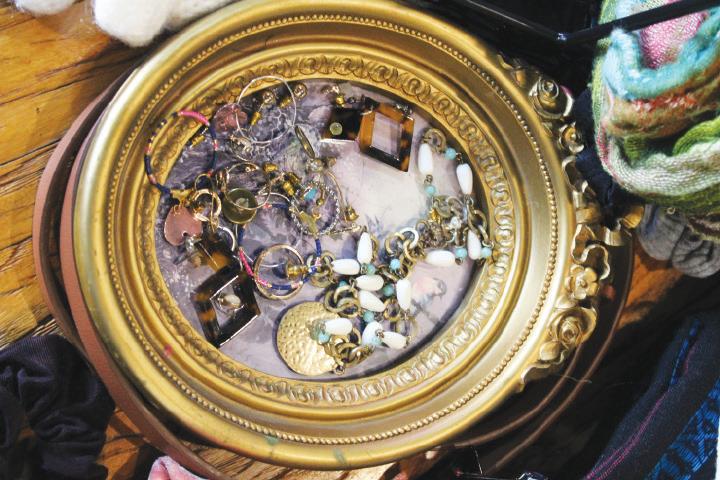
“It’s really exciting to just be able to file that knowledge to the popup shop because in retail, you’re probably going to be lower on the chain,” Wolfe said, “but with the pop-up shop, you get to take charge, and everyone’s ideas are so welcome.”
Avery Martin, second-year fashion merchandising major and FMA’s secretary, said club members put a lot of hard work and time into the fundraiser this year, meeting every week to plan for it. During the build-up for the shop, Martin was in charge of the promotions team, spreading the word through social media.
She posted on FMA’s Instagram and TikTok accounts prior to the event which is also how Fisher heard about the pop-up shop.
“I’ve just heard a lot of [people saying], ‘It’s so cute,’ and compliments on all the clothes,” Martin said. “We’ve been getting so many clothes. We had to restock, and it’s amazing to see how many people donated.”
Martin said she believes the pop-up shop is setting FMA up for success, and it’s something the organization should make a tradition.
“It just shows what fashion merchandising students can do,” she said. “We can make a whole store in three days with a theme, and I think it’s so fun.”
While the pop-up shop is the organization’s largest event, Kirk said they also have smaller fundraisers, such as sticker and poster sales in the Atrium or other places on campus. In the future, she said she hopes members can create other large fundraising events.
Kirk also said she has high hopes for the organization’s future with members pitching new ideas and testing the limits they set for themselves.
“I want people to be able to experiment with new events that are really big … and work with other clubs like Professional Design Society, Women in Business and other business clubs as well,” Kirk said. “I just want us to be able to expand on different ideas and not limit ourselves.”
Contact Maya Wilkins with comments at mrwilkins@bsu.edu or on Twitter @mayawilkinss.
- JAKOTA FISHER, Second-year fashion industry studies majorShoes are displayed at the FMA pop-up shop Oct. 28 at the Warehouse at the Village Promenade. All items at the shop were thrifted and donated. MAYA WILKINS, DN The pop-up shop fundraiser for the Fashion Merchandising Association (FMA) sits Oct. 28 at the Warehouse at the Village Promenade. The pop-up shop was open Oct. 26-28 from 2-7 p.m. MAYA WILKINS, DN Jewelry sits in a frame at the FMA pop-up shop Oct. 28 at the Warehouse at the Village Promenade. The pop-up shop included thrifted clothes, jewelry and other accessories. MAYA WILKINS, DN Sarah Olsen Reporter
Laura Janney knew her son was gay.
At 12 years old, Matt loved playing with Barbies, strutting around in his mom’s high heels and listening to ABBA day in and day out. What Laura did not know was how to cope with his identity, given it was far removed from her expectations.
Although the signs were obvious — to the point even friends and family would acknowledge them, much to her frustration — she was in deep denial about Matt’s sexuality.
“We had to process it by ourselves as a family to make sense of it,” Laura said.
Thus began the family’s quest to understand him.
Once Matt came out to them, the Janneys started driving their son two hours round-trip to Indianapolis where he could attend Indiana Youth Group (IYG), a nonprofit that “strives to provide safer spaces to build self-confidence, explore individualism and develop friendships within the LGBTQ+ community,” according to its website.
Although they were able to find the support and education they needed at IYG, the drive and time commitment was a huge drain on the family’s time and money — a sentiment that rang true for other adolescents there.
As a result, the Janneys saw a subsequent need for a local safe space for LGBTQ youth in Muncie, which led Laura and her husband, Jeff, to establish Muncie OUTreach in 2012.
“For kids, it doesn’t matter what you’re talking about,” Jeff said. “If they can discuss it with someone their own age, they’d rather do that. That has made our collaboration with the Muncie community so important.”
The Janneys were able to get the initial program off the ground thanks to a collaboration with the Unitarian Universalist Church of Muncie. It connected them with another OUTreach program in Ogden, Utah, which helped them lay the foundation for their organization.
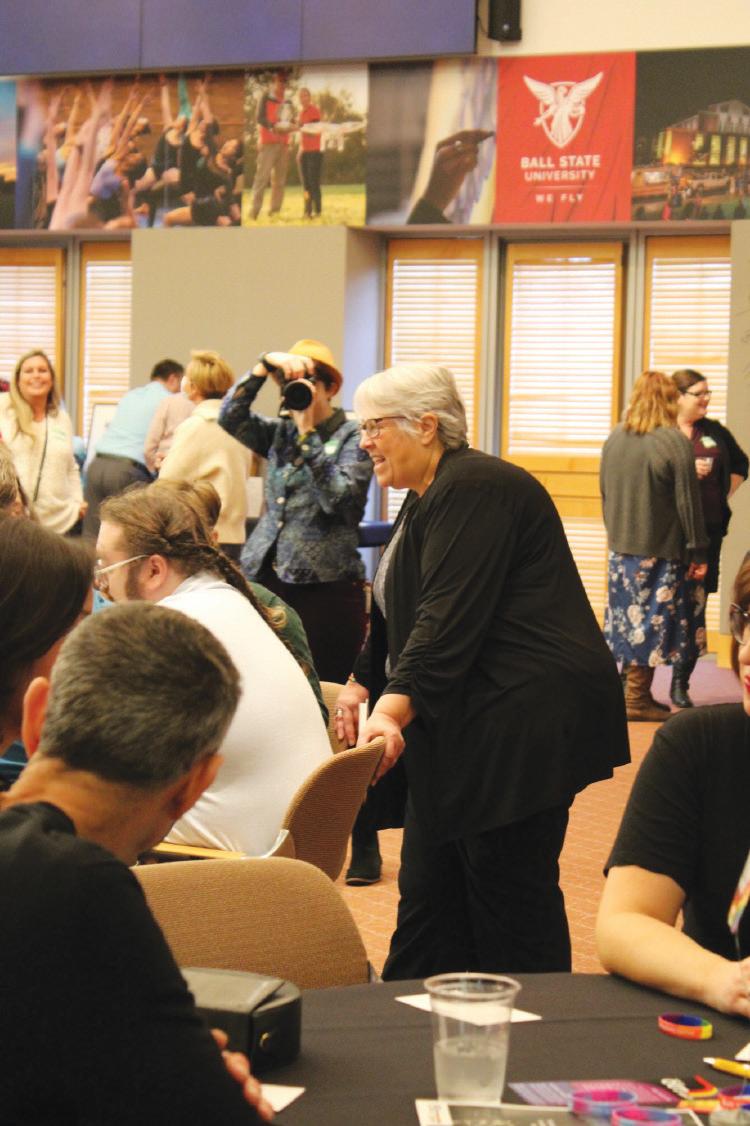
According to the website, the goal for the OUTreach program is to “provide an accepting environment to enhance the personal growth of gay, lesbian, bisexual, transgender and questioning youth in the Delaware County area.”
Though Laura knew building such an ambitious program — one that would be the first of its kind in Delaware County — from the ground up would be difficult, she was convinced the effort would be worth it.
A decade later, Laura said the impact speaks for itself.
“I never thought we’d be here 10 years down the road,” Laura said. “The few hours kids spend here help them have a light bulb [moment], or it helps them see something different, or maybe it makes them feel safe or gets them a warm meal. We also have lots of clothes to give them. That keeps me going.”
Laura attributes the doubt she experienced during Muncie OUTreach’s formative years to stress that stemmed from the nature of running a nonprofit: no one is paid for their work, and the organization’s existence relies solely on funding from donations.
Now, the Janneys worry the future has grown even more unreliable following the pandemic.
“[Laura] wants these kids to thrive and know they’re not alone, but it’s hard to do,” Jeff said. “It’s been an interesting ride because COVID[-19] has been horrible to navigate, but she’s trying to get things going again.”
Only recently have the Janneys been able to host in-person youth groups and events again — earlier this year, they held their first pride festival — as COVID-19 cases have been dwindling on an aggregate level in Delaware County since the onset of the pandemic, according to the CDC’s case count tracker.
That is not the only problem the Janneys have had to tackle.
not yelling at their kid since they’re freaking out,” Laura said. “When you have a straight brain, you put your straight thoughts on your kids, and then, when they come out, there’s a freak out period for parents.”
The ensuing rebound of Muncie OUTreach has been aided by its numerous community partners and organizations, including Spectrum, which has catered to LGBTQ students on Ball State University’s campus since its inception in 1974.
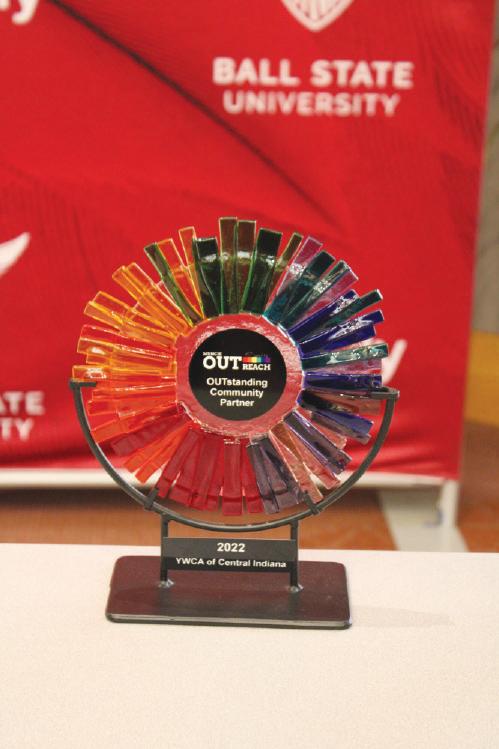
Since they have similar goals, the two organizations have collaborated many times in order to widen their impact.
“Traditionally in the past, Spectrum worked a lot with Muncie OUTreach, especially when it came to Spectrum’s drag shows,” Cody York, Spectrum student government representative, said. “We are also invited to any events they are having to grow as a community on campus.”
The most recent event Muncie OUTreach hosted was its 10th Anniversary Celebration Oct. 27 at the Ball State Alumni Center. The celebration included a silent auction, dinner and an awards presentation.
“There’s so many kids who don’t know how
SARAH OLSEN, DNI remember looking up LGBTQ organizations in Muncie because I wanted to do more. I wanted to do more than protest. Donating and spending my time at OUTreach is how I fight back, and I’m really glad an organization like this is in the community,”
of Muncie OUTreach events. In the year he has been a part of the organization, he and his younger siblings, Riley and Ezra, have all grown fond of going together.
“I’ve had a lot of opportunities to meet a lot of new people and try new things,” Riley said. “It’s been more welcoming than anything I’ve been to before.”
In addition to Muncie community members, Ball State students and alumni alike also attended the event. One guest, Teri Lightning — a 2022 Ball State graduate — reflected on her time at OUTreach.
“I joined OUTreach back in March,” Lightning said. “I remember looking up LGBTQ organizations in Muncie because I wanted to do more. I wanted to do more than protest. Donating and spending my time at OUTreach is how I fight back, and I’m really glad an organization like this is in the community.”
“Sometimes parents come in just to yell at us, which I’m thankful for because that means they’re
to approach identifying themselves or how to get involved in the [LGBTQ] community,” event guest Elijah Terry said. “It’s important for them to have the space to express themselves, express when they identify with a gender or sexuality that isn’t accepted in their communities.”
Terry is from Muncie and is a regular attendee
Those interested in attending future events or long-term volunteer opportunities with Muncie OUTreach can email the Janneys or note their interest on the program’s website.
Contact Sarah Olsen with comments via email at snolsen@bsu.edu.
Muncie OUTreach celebrates 10 years as Delaware County’s only LGBTQ youth group A DECADE OF ACTIVISMLaura Janney speaks to event guests at the 10th Anniversary Celebration for Muncie OUTreach Oct. 27 at the Ball State Alumni Center. Laura and her husband, Jeff, are the founders of the organization. SARAH OLSEN, DN An award sits on a table ahead of the 10th Anniversary Celebration for Muncie OUTreach Oct. 27 at the Ball State Alumni Center. This award for Outstanding Community Partner was given to the YWCA of Central Indiana.
- TERI LIGHTNING, Ball State graduate
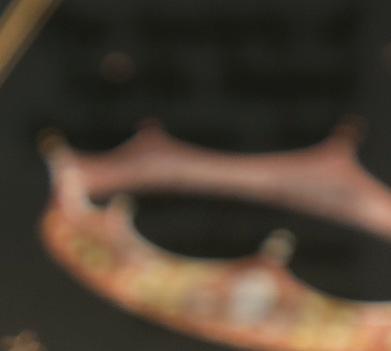
Two jazz ensembles taught by Mark Buselli, director of jazz ensembles at Ball State, will be performing at the Hahn Recital Hall in the Music Instruction building Nov. 8 from 5:30-7:30 p.m. Each ensemble will play an hour-long set of jazz pieces by Chick Corea, Woody Shaw and other jazz composers. The event is free to the public.
Downtown Muncie’s monthly First Thursday event will take place Nov. 3 from 5 p.m.-8 p.m. Featured vendors and events include an art exhibition at Gordy Fine Art and Framing at 224 E. Main Street, a community meal hosted by Charmed Cupcake at 114 N. Mulberry Street and live music at MadJax Muncie at 515 E. Main Street.
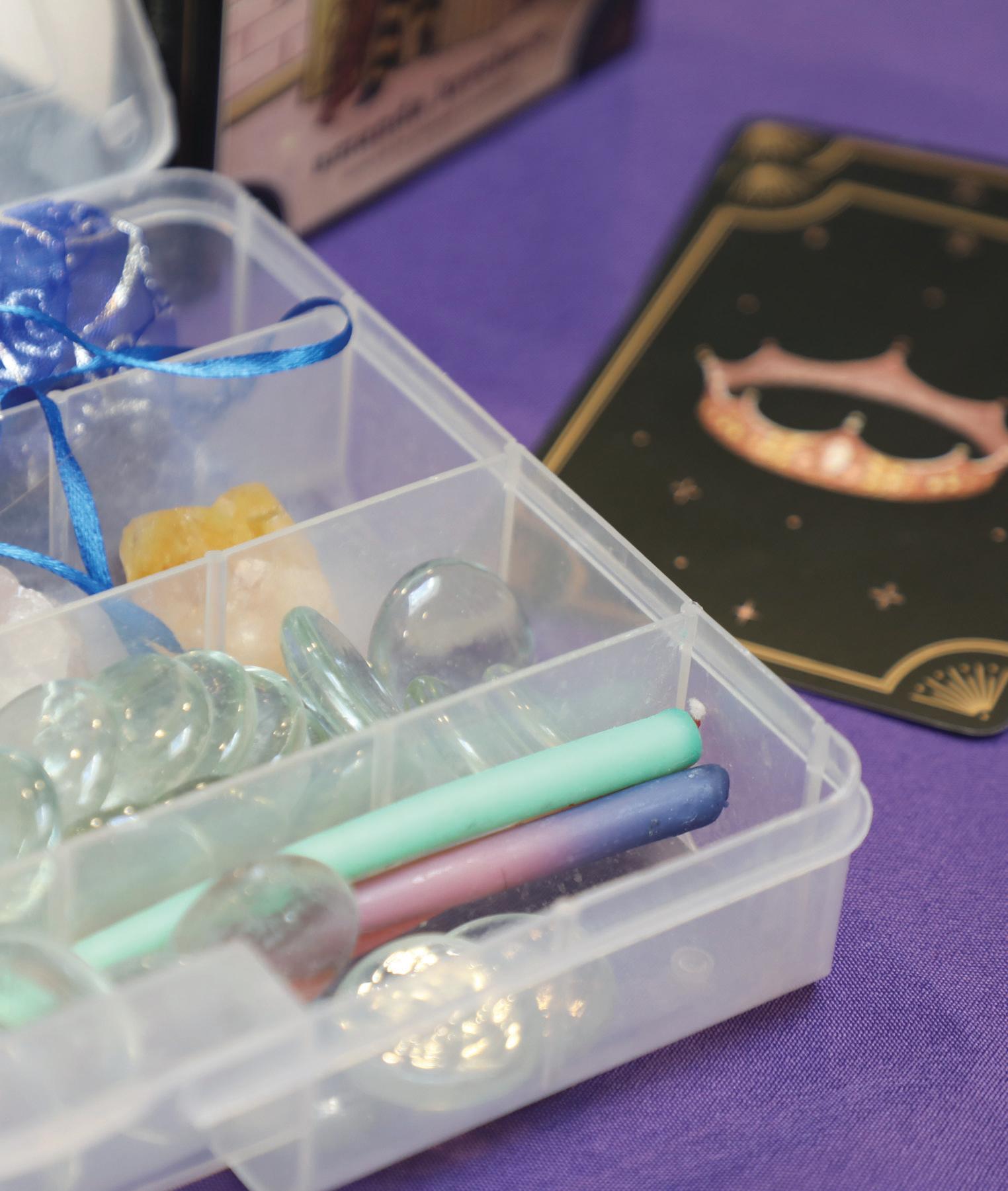
The Minnetrista horticulture team began accepting volunteers Nov. 1 to tend to the gardens on the Minnetrista campus. Volunteer opportunities will run through November every Tuesday and Thursday from 8-11 a.m. It is also meant to be educational for volunteers. Those interested in volunteering should email Mary Zwickl at mzwickl@minnetrista.net.
Trying to get from one side of campus to another in a short amount of time can be a challenge when you’re late for class or a meeting. On any given weekday, students will zip around campus on scooters, bikes, hoverboards, longboards and more. If you’ve ever considered buying your own set of wheels to bypass the foot traffic, here are some things you should consider when you step into the store.

For college students who are running on tight budgets, a skateboard or a longboard are cost effective choices, ranging from $35 to $70 depending on the brand. Some brands include the Alamada Skateboard from Retrospec. Skateboards can increase in price significantly based on the style and quality of the deck, the board the rider stands on and quality and longevity of the wheels. Adultsize kick scooters are pricier, ranging from $60 to $120, such as the Razor Carbon Kick Scooter from Walmart, but they have a variety of options and adjustments for riders’ heights. Hoverboards, like the Hover-1 Ranger Hoverboard, fall into an average price of $100 to $200. Bikes can be priced anywhere between $100 to over $600 depending on the size of the bike frame, wheels and special additions such as reflectors, lights and mounts for phones. Electric scooters can be just as expensive, ranging from $150 to $500. For instance, the Apex Electric Scooter by GOTRAX costs $349.
A bike is a good choice for those who are looking for daily exercise. If you don’t think you have the leg power and coordination to ride a manual kick scooter or skateboard, consider buying a hoverboard or an electric scooter. These battery-powered options are generally faster and require the rider to do little operation other than pressing a handle or pedal. Most electric scooters can reach up to 20 mph, while many Razor hoverboards have speeds from about 6-8 mph, making it easy to zip through campus in minutes. However, forgetful students should be wary. If you forget to charge your scooter or hoverboard, you may have to ride the bus to class or worse: walk.
Second-year Brock Ellis rides his skateboard to class every day, but he’s considering buying an electric scooter over purchasing a bike.
“Electric scooters are similar to skateboards but faster and not leg powered,” Ellis said. “But electric scooters just got popular … and I already have [the skateboard], and I have a lot of fun riding it.”
However, third-year Lars Arceneaux rides his bike down McKinley Avenue daily because he said he doesn’t have the coordination to skateboard and has concerns about scooters.
“There are the razor [kick] scooters, and they’re a bit slower than a bike,” Arcenaux said. “I feel like electric scooters are a bit much. I don’t want to have to deal with having to charge them, plus the bike gives me a good workout.”
Some options are easier to store than others. Skateboards, foldable scooters and hoverboards can fit in spaces as small as a closet or under a bed. Carrying those into class, however, could make walking down aisles of desks more difficult when trying to keep them with you. If you’re interested in purchasing a bike, there may be additional costs to make sure your bike is locked and secure. Bike locks, such as the “U-Locks” recommended by the Ball State University Police Department, are useful for the bike racks located outside dorms and academic buildings. However, if it rains or snows, one might have to dry off their bike before going to class. Ball State also provides bike lockers outside residence halls, such as Studebaker West, Noyer, Park, Kinghorn and Anthony Apartments, for a $50 fee at the beginning of the academic school year.
After choosing the best option for you, don’t forget about safety. Make sure you find a proper fitting helmet before you start riding, especially at high speeds. Also, being aware of your surroundings and giving verbal cues to pedestrians is very helpful in preventing accidents on a sidewalk of bustling students. Quick and smart navigation is a part of safety.
By considering all of these factors when purchasing your new set of wheels, you’ll be ready to hit the pavement.

Contact Imani Butts with comments at imbutts@bsu. edu or on Twitter @imani_butts.
I feel like electric scooters are a bit much. I don’t want to have to deal with having to charge them, plus the bike gives me a good workout.”
To bike, skate or ride? A guide to shopping for the right set of wheels for your commute around Ball State
- LARS ARCENEAUX, Ball State third-yearJULIE BUCHMEIER, DN
JULIE BUCHMEIER, DN ILLUSTRATIONJOSIE SANTIAGO, DN ILLUSTRATION
Midnight Guffey grew up in a Christian family.
“I think they were technically Baptist, though they never really were denominational,” they said. However, Guffey became disillusioned with Christianity and sought different routes to express their spirituality. At 12, Guffey was introduced to Wicca by a mutual friend. After this experience, they began to learn more about Wicca and paganism before eventually becoming a pagan.
The Merriam-Webster Dictionary defines paganism as “the beliefs and practices of contemporary religions or spiritual movements based on ancient paganism.” Guffey noted that most of these ancient religions existed before modern religions, like Christianity and Islam, originated.
In fall 2019, after getting their driver’s license, Guffey looked around for clubs to join on campus. The Society of Earth-Based Religions (SER) interested them because of the organization’s acceptance of all religious creeds and identities.
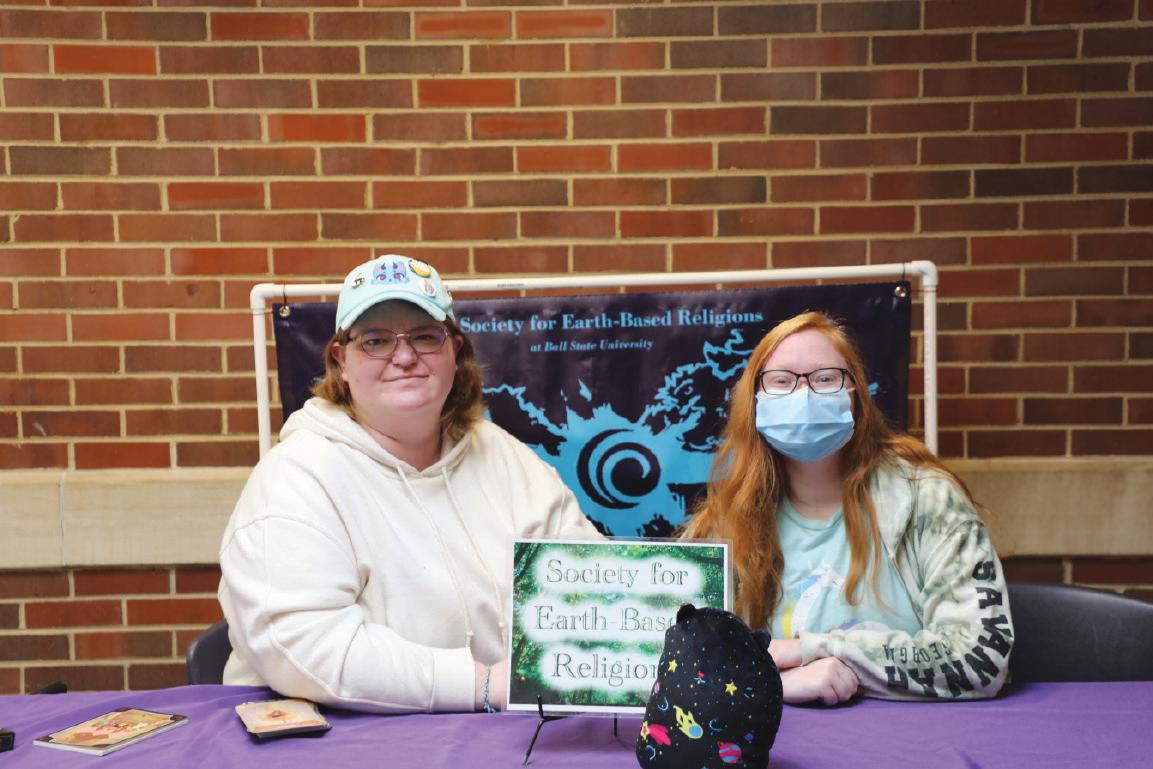
Guffey said even though many members of the club are pagans, which they call a “diverse umbrella term,” the club has had members who practice Christianity, Buddhism and Hinduism as well.
“We’re open to anyone, but a lot of our stuff is focused around polytheism [the belief in more than one god],” Guffey said.
The Society of Earth-Based Religions at Ball State has existed since 2002, and Guffey and other members of the group are reaching out to the community in the name of religious tolerance and acceptance.
Rebecca Lawrence first came to Ball State in fall 2014. When she joined the Society of Earth-Based Religions, she said she was “trying to find herself.”
“I was starting to get interested in … metaphysical spiritualism,” Lawrence said.
Like Guffey, Lawrence got into Wicca and then paganism through a mutual friend.
“[My sister’s best friend has] always been very into all that,” Lawrence said. “She was very open about like, ‘Hey, this is what I do.’”
Lawrence noted the main difference between what she calls “mainstream” religions, such as Christianity, Islam and Judaism, and pagan religions, is nature.
Lawrence also noted that unlike other religions, most pagan religions do not have a central religious text that its followers adhere to. She said that even though most members of the club are pagans, there are many subsections of pagan religions.
Guffey said most members follow religions based on ancient Celtic, Greek and Nordic religions.
Guffey, the president of the club, considers themself a “Hellenistic Reconstructionist,” a pagan religion based on the beliefs and mythology of ancient Greece.
“It relies a lot on texts that we have left over on the archaeology of the culture,” they said.
James Gage was born and raised Catholic before getting into paganism. Now, the first-year student considers himself a Buddhist, and while learning about Buddhism, Gage noted how the “Westernized version” of Buddhism differs from the actual teachings.
“People try to secularize it and really just remove some of the major components of it,” Gage said.
Gage first came into contact with the club through the annual Ball State activity fair and noted how welcoming the members of the group were despite their different spiritual beliefs.
“Everyone is very helpful towards each other,” Gage said.
Guffey said a major goal for the club is for them to be able to reach out to the community and bring awareness and tolerance to different religious beliefs. One way the club does this is by holding tarot readings every Friday during lunchtime at the Student Center.
“[The Student Center’s] a space where people actually have a time to stop and do something rather than the Atrium,” Lawrence said.
On a typical day, around 15-20 people will stop by the tarot card table to have a reading. Guffey believes most people want to have a tarot card reading because they are stressed about something in their life, and they want some sort of insight on what is going on.
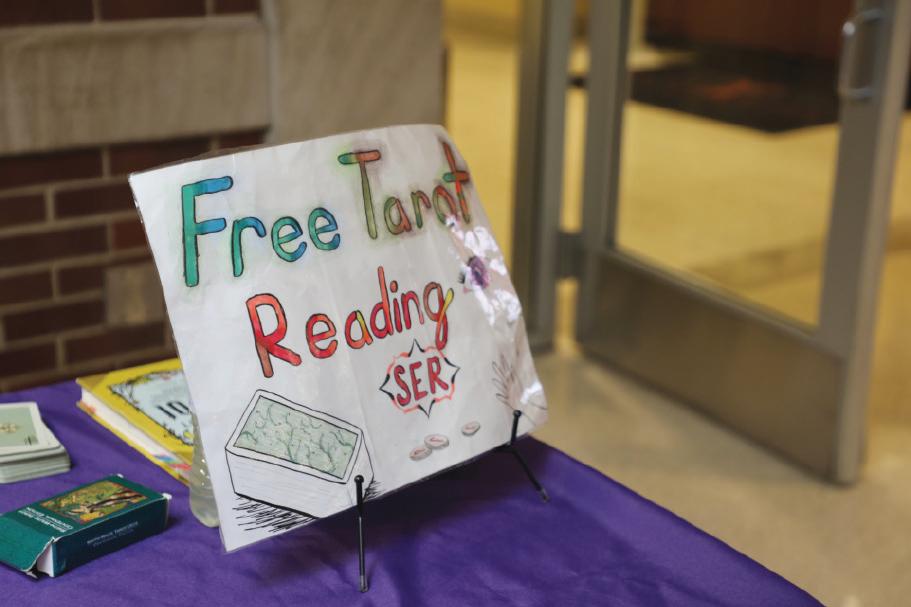
At their tarot card readings, the club also showcases crystals to students. Guffey noted that they started showcasing them because crystals, like herbs, have important qualities in magic.
“They can have different … spiritual properties in [them],” Guffey said. “And that also can vary depending on like religion and faith.”
One of Guffey’s favorite crystals, lapis lazuli, is said to support creative expression. Another favorite, obsidian, is said to have “grounding” qualities.
Tarot card readings are used to guide a person through their past, present and future, Lawrence explained.
“We’ll do the three card reading because it’s simple, and it’s easy to do and easy to explain,” Lawrence said.
Each of the three cards will have a design on them used to represent something in that person’s life. The meanings, however, are not concrete and absolute.
“I don’t want to tell them what it means to their situation because tarot cards are up to your interpretation,” Lawrence said.
Originally, SER did their tarot card readings in the Atrium, but they decided to move it to the Student Center a couple of years ago due to the high traffic of people in the Atrium.
In addition to holding tarot card readings, the club takes trips to pagan events in Indiana. These events usually have vendors selling crystals and tarot decks, and some pagan events also have workshops people can attend.
“To see all these people who also have varying beliefs that are sharing their craft and their skills, … it’s just very lovely,” Gage said.
Guffey is also working to expand the club’s reach on campus by partnering with other clubs at Ball State. They have reached out to various religious groups on campus to help promote religious tolerance.
“Part of pride and tolerance is making sure there’s a variety of voices heard,” Guffey said.
Gage said that, like many other clubs on campus, SER took a hit during the pandemic. Now, the club is looking toward the future and how it will help foster religious acceptance on Ball State’s campus.
“So I’d really like to see more people join and be active,” Gage said. “Even people that aren’t necessarily pagan or spiritual.”
For Lawrence, who is currently getting her master’s degree in adult and community education, she noted the connection and community in the club. She met all of her current roommates through the club and has gotten to be more comfortable with herself.
When COVID-19 hit, Lawrence said the situation was so dire for the group that it almost disbanded. She hopes after she graduates, the group will have a bright future.
“We’ve had ups and downs,” Lawrence said. “My hope is that it would go even farther up.”
Contact Grayson Joslin with comments at grayson.joslin@bsu.edu or on Twitter @GraysonMJoslin.
Part of pride and tolerance is making sure there’s a variety of voices heard.”
- MIDNIGHT GUFFEY, President of Society of Earth-Based ReligionsFourth-year Cliff Lee and third-year Christina Henry pose for a photo at a tarot card reading for the Society of Earth-Based Religions Oct. 28 GRAYSON JOSLIN, DN The Society of Earth-Based Religions hosts their weekly tarot card readings Oct 28. GRAYSON JOSLIN, DN
Day of the Dead (Dia de los Muertos)
is a Mexican celebration, not a “Mexican Halloween,” where families honor past loved ones and ancestors. The holiday started in the early 1500s when Spanish invaders brought it to Mexico. The holiday combines the ancient Aztec custom of celebrating ancestors with All Souls’ Day.
Day of the Dead is celebrated Nov. 1-2, and the holiday is viewed as a family reunion. The celebration is a joyful time that helps people remember the deceased and
celebrate their memory.
During the celebration, family members will set up a candle lit ofrendas (offerings) altar in their homes, so deceased family members’ spirits can find their way back to their relatives. The altar will hold favorite foods, photos and/or items of the deceased.
After families celebrate in their homes, they head to the graveyard to hold a large party. Families will take the time to clean tombstones, sing songs and talk to their deceased loved ones.
Day of the Dead is a time for families to honor ancestors and keep family members’ spirits alive.
Sources: National Geographic Kids, Day of the Dead Holiday, and Cozy Meal
Flor de muerto (marigold flowers)
Photos of deceased loved ones
Pan de Muertos: Sweet, fluffy loaves sprinkled with sugar and topped with a small bone-shaped piece of dough
Tamales: Wrapped with masa inside of corn husk and steamed. Tamales are filled with a variety of meats and flavors
Red Pozole: A savory stew of meat, hominy and spices that give an extra kick from the red chiles
Caramel Flan: A rich, creamy custard topped with caramel dessert
Calavera (sugar skull): A colorful decorated sugar skull, often carved with the name of the deceased. The skull is placed on the ofrenda Mexican Hot Chocolate: The drink contains warm spices like cinnamon, nutmeg and a little cayenne pepper; the hot chocolate is known as a cozy beverage
Horchata: A drink made from soaked rice, sweetened with cinnamon and sugar
The Pacemaker 100
Ball Bearings Magazine
Ball State Daily News Orient Yearbook (retired)
Four-year Newspaper of the Year
The Ball State Daily News Stories
Column Second Place: Shannon McCloskey
Ball Bearings Magazine
My Pink Snowsuit
Sports Feature Story
Fifth Place: Ian Hansen
The Ball State Daily News How K.J. Got His Cape

In-Depth News Story
Honorable Mention: Joey Sills
The Ball State Daily News
Ball State students call for an on-campus minimum wage raise
Fourth Place: John Lynch, Shwetha Sundarrajan, Daniel Kehn, Jacy Bradley, Maya Wilkins
The Ball State Daily News
Sister Cindy’s controversial sermon at Ball State drew hundreds of viewers to the Quad
Social Media Promotion
Honorable Mention: Alex Bracken
Ball Bearings Magazine
Four-Year Feature Magazine of the Year
Second Place: Ball Bearings Magazine
Best Display Ad
First Place: McKinley Avenue Agency, Ball State Daily News
Best Rate Card/Media Kit
Honorable Mention: McKinley Avenue Agency, Ball State Daily News
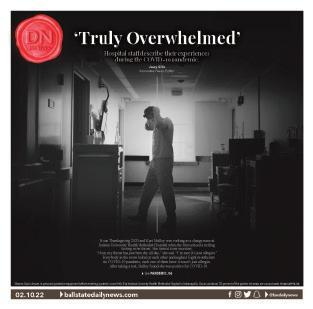
Best Social Media Strategy
Third Place: McKinley Avenue Agency, Ball State Daily News
Print Advertisement
Second Place: Elena Leddy
The McKinley Avenue Agency Connect The Dots MITS Ad
Fifth Place: Elena Leddy
The McKinley Avenue Agency Download MITSBUS Ad
Digital Advertisement
Fifth Place: Eli Lucas
The McKinley Avenue Agency
“Muncie’s hidden gem is waiting to be explored” / Minnetrista Ad
Honorable Mention: Matthew Borders, Colton Hendrix
The McKinley Avenue Agency
Cardinal Kitchen Promo Video
Honorable Mention: Matthew Borders, Colton Hendrix, Reid Shaffer, Karissa Wiegand, Itzel Portillo
The McKinley Avenue Agency McKinley Avenue Promo Video To Clients
Media Kit
Honorable Mention: Olivia Weinzapfel
The McKinley Avenue Agency 2021-2022 Services Guide
Social Media Campaign
Second Place: Abril Castenda, Olivia Weinzapfel, Anne Grady
The McKinley Avenue Agency Cardinal Coupon Book Campaign
Honorable Mention: Maggie Getzin
The Ball State Daily News
How K.J. Got His Cape
First Place: Maggie Getzin
The Ball State Daily News
Brain Drain
Third Place: Maggie Getzin
The Ball State Daily News
Remnant of the Monarchy
Fifth Place: Shannon McCloskey, Kami Geron, Alex Bracken
Ball Bearings Magazine

In Love with Muncie
First Place: Maggie Getzin
The Ball State Daily News Memorializing Black Mamba
Third Place: Kamryn Tomlinson, Rylan Capper
The Ball State Daily News Unspoken Truths
Honorable Mention: Alex Bracken
The Ball State Daily News Visualizing Blight in Muncie
Best Newspaper Entertainment Page/Spread
First Place: Ball State Daily News
Best Newspaper Front Page
First Place: Ball State Daily News
Best Newspaper Nameplate: Honorable Mention: Ball State Daily News
Best Newspaper News Page/Spread
Second Place: Ball State Daily News
Best Newspaper Opinion Page/Spread
First Place: Ball State Daily News
Best Social Media Presence
Third Place: Ball Bearings Magazine
Best Viral Video
First Place: Ball State Daily News
Best Portrait
Third Place: Ball Bearings Magazine
Best Special Section/ More than Four Pages
First Place: Ball State Daily News
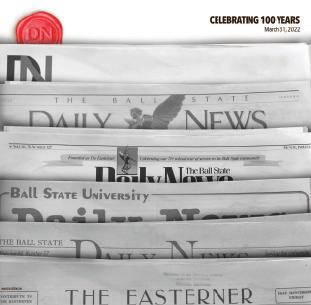
take a look at the awards won for this year’s Pacemaker and Pinnacle Awards






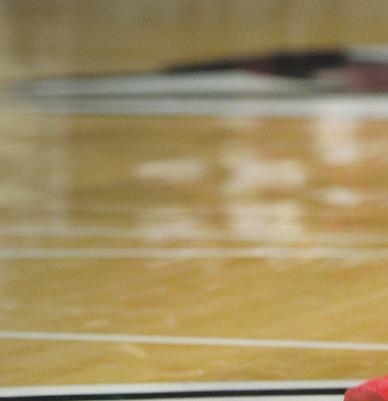
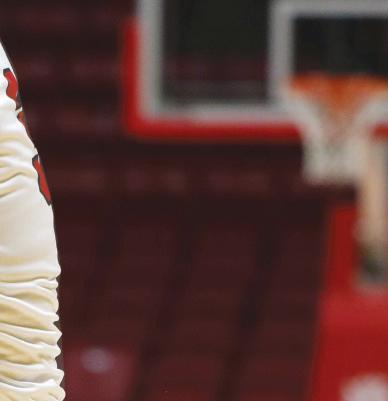
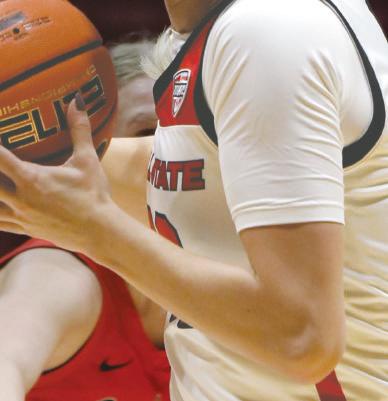
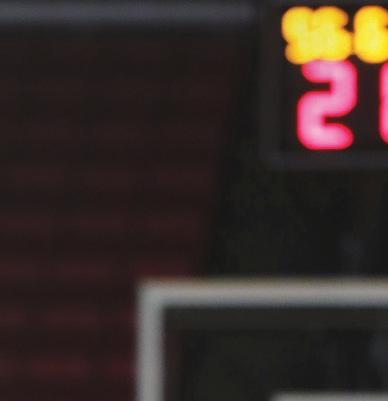
After leading by one point at halftime, the Cardinals surged in the second half against Depauw to record an 87-60 victory in exhibition play. Ball State shot 56 percent from the field with four players reaching double-digit points. Redshirt junior guard Jarron Coleman led the Cardinals with 22 points, seven rebounds, four assists and three steals.
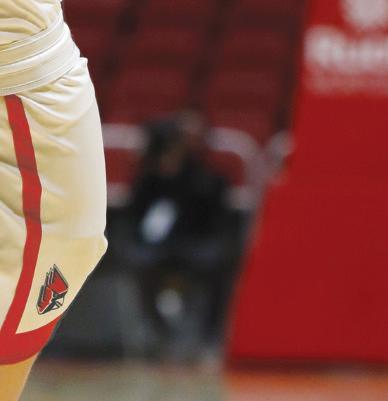





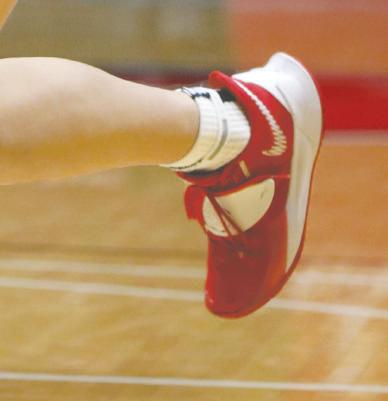
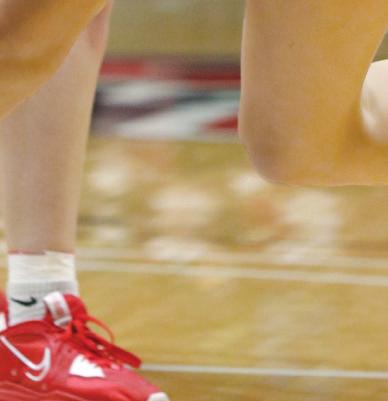
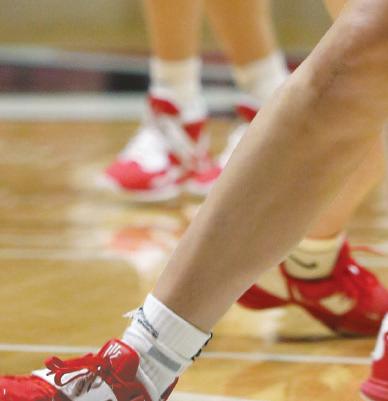

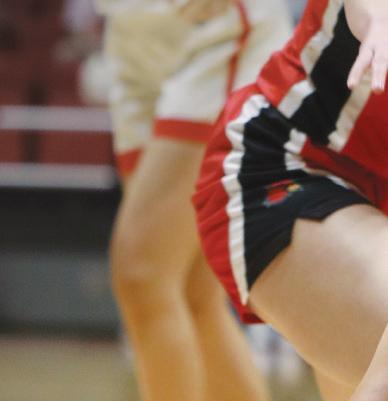
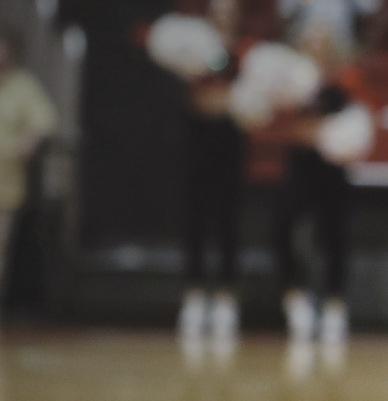
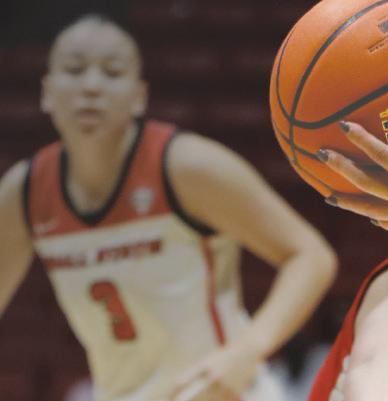
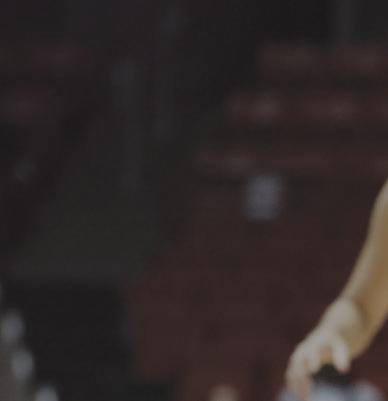
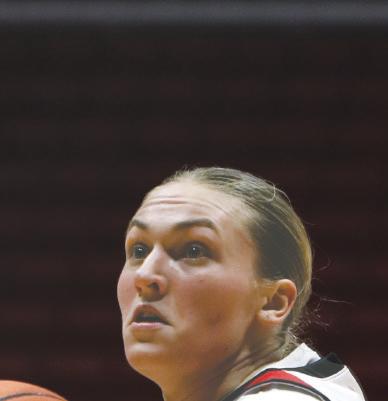
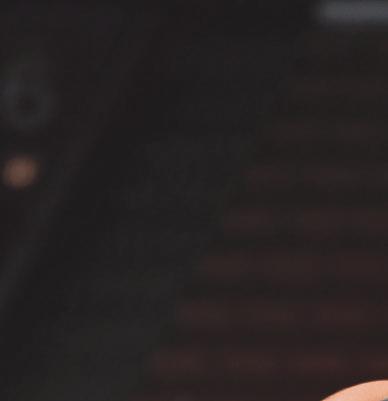

The Cardinals opened the season with a 43-point exhibition victory over Wheeling University at home. Rotating in and out, 11 different players saw time on the floor with 10 of 11 players scoring more than two points. Ball State forced 23 total turnovers in the game and turned them into 25 points. The Cardinals open the regular season Nov. 7 against Tennessee Tech.

Ball State Swim and Dive recorded wins over Eastern Illinois on the women’s and men’s sides Oct. 28. Women’s won 163-93 while men’s won 170.5-86.5. Defending MidAmerican Conference (MAC) in the 100-yard breaststroke, Joey Garberick finished first in the 200-yard breaststroke with a 2:07.73 time while seven swimmers on the women’s side picked up individual wins.
“Week two, senior year, West Bloomfield,” John Paddock and Jack Sape said as they chuckled, sharing a glance in the Ball State Football team meeting room.
Recalling their favorite memory of playing high school football together, Paddock and Sape finished each other’s sentences.
Similar to Ball State’s situation coming into the 2022 season, Paddock and Sape’s high school was picked to go 0-8, dead last in their conference.
Their school’s rival, West Bloomfield, was the number one team in the state with double-digit Division I commits, but the Black Hawks came back after being down 24-7 in the fourth quarter to win the game.
“John had a fake spike on the one-yard line and won us the game there,” Sape said.
The two share memories of their high school days and poke fun at their younger years in conversation.
Paddock and Sape played against each other in elementary school youth sports, more than five years before they played together at Bloomfield Hills High School and almost a decade before they both committed to play for Ball State Football.
“They both were great high school football players who were a steady force in building teammates up, always in a positive manner and always displayed success on the field with a sense of grace and respect for the game,” Bloomfield Hills head coach Dan Loria said. “Their leadership skills were natural and exemplified the leadership skill we want in our program ...”
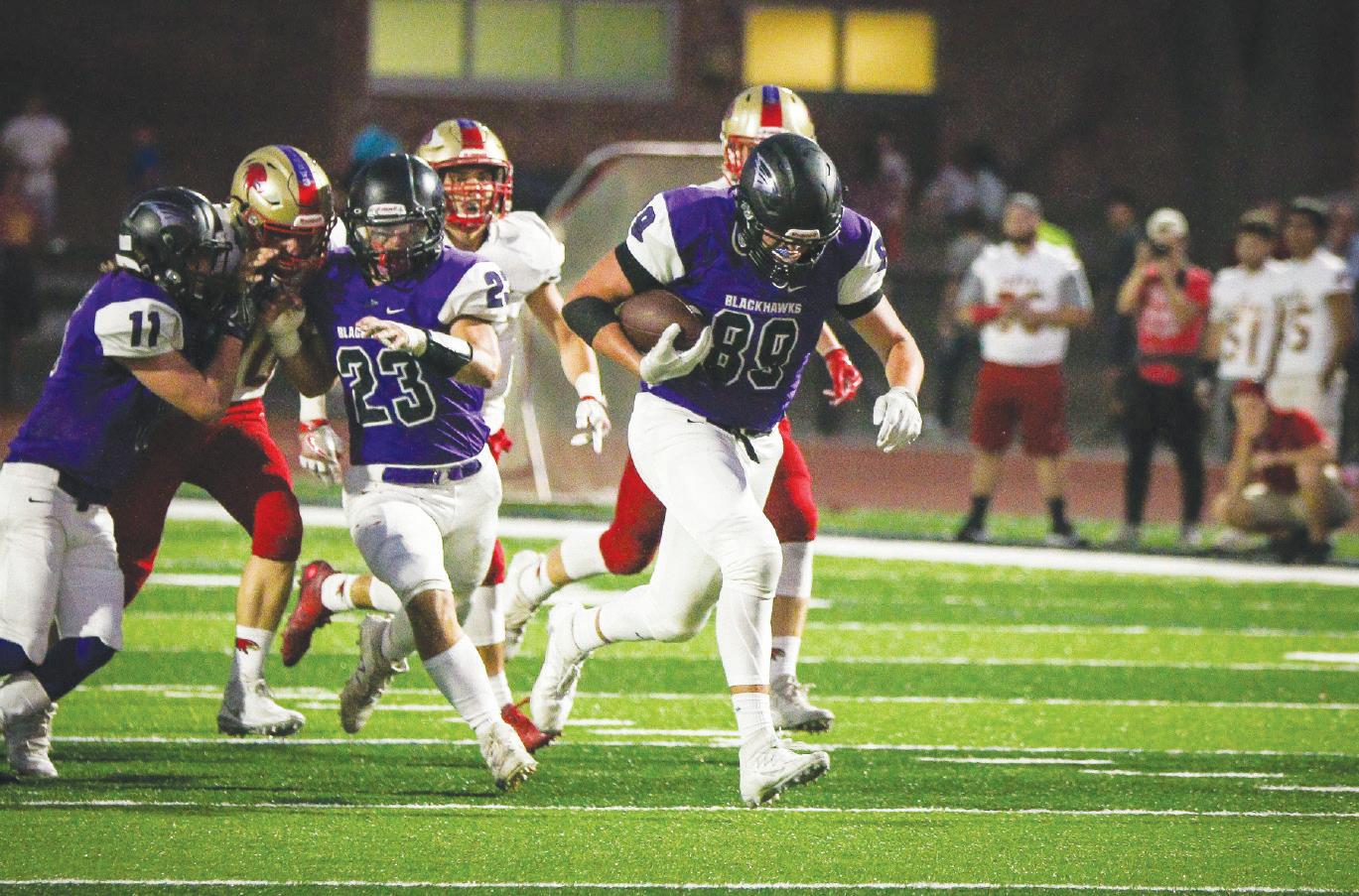
The pair were adamant about their Division I goals early in the recruiting process with Paddock describing Sape as a “juggernaut” in the process.
“[Sape] got a lot of deserving attention after junior year,” Paddock said. “I really didn’t have my breakout year until my senior year. My junior tape was okay, and we had a great year, but Jack really had a dominant junior season.”
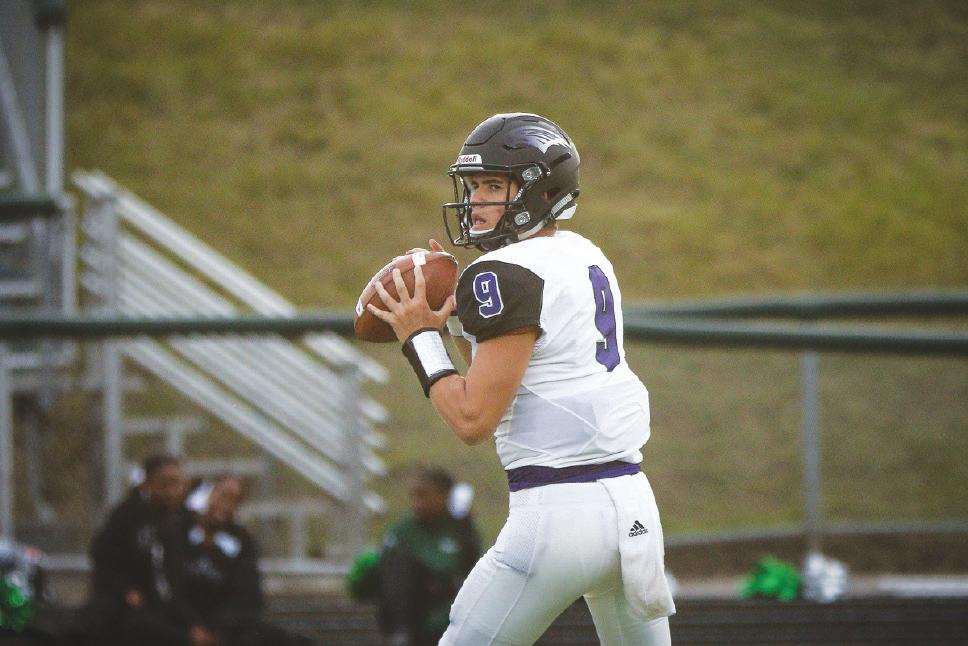
Sape, now a redshirt junior defensive lineman, committed to Ball State early in the recruiting process but knew that his high school quarterback could be an asset to his new team.
“I kept pushing to have them look at John, and I’m glad they freaking did because [he] can sling the ball, and I’ve known that for a long time,” Sape said.
Paddock got a chance when a Ball State area coach was in town to watch Sape play. A couple weeks after their initial conversation, Paddock threw for the then-offensive coordinator Joey Lynch, the older brother of current Ball State offensive coordinator Kevin Lynch, and it all
one of the first people he texted. The two held a joint signing day in December 2017, a culmination of their effort coming together.
recruiting process is very rigorous and can really suck sometimes,” Paddock said. “I just think a lot of that coming to fruition and then, obviously flipping the switch and being like ‘Alright, now it’s time to get to work,’ but it was just a great day of celebration.”
Arriving in Muncie, Paddock and Sape were not early enrollment players, so they were thrown into the fire right away with classes, practice and in-season schedules.
“Here it was brand new,” Sape said. “It’s cool having someone, just like us two being from there, and it’s been awesome being able to play by John.”
For Sape, it was the importance of having a connection to home. It was a familiar face in the new environment.
“I think it’s definitely been something where we can just lean on each other … if we ever need anything,” Paddock said. “Probably from more of an athletic perspective because when you start your college career, it’s really, you know, it’s a
he can from Michigan, and Paddock and Sape get calls and texts from Loria after most games. The connection and bond is something Loria said will stay throughout their lives.
“I feel so blessed to have been a part of their lives as I am blessed to have them in my life and the impact that they made on me personally and professionally as a high school football coach,” Loria said. “They are two outstanding young men that we need more of in society today.”
The Cardinals (5-4, 3-2 MAC) sit second in the Mid-American Conference (MAC) West Division, hoping to secure bowl eligibility and/or a trip back to Paddock and Sape’s home state for the MAC Championship in their final three games of the season.
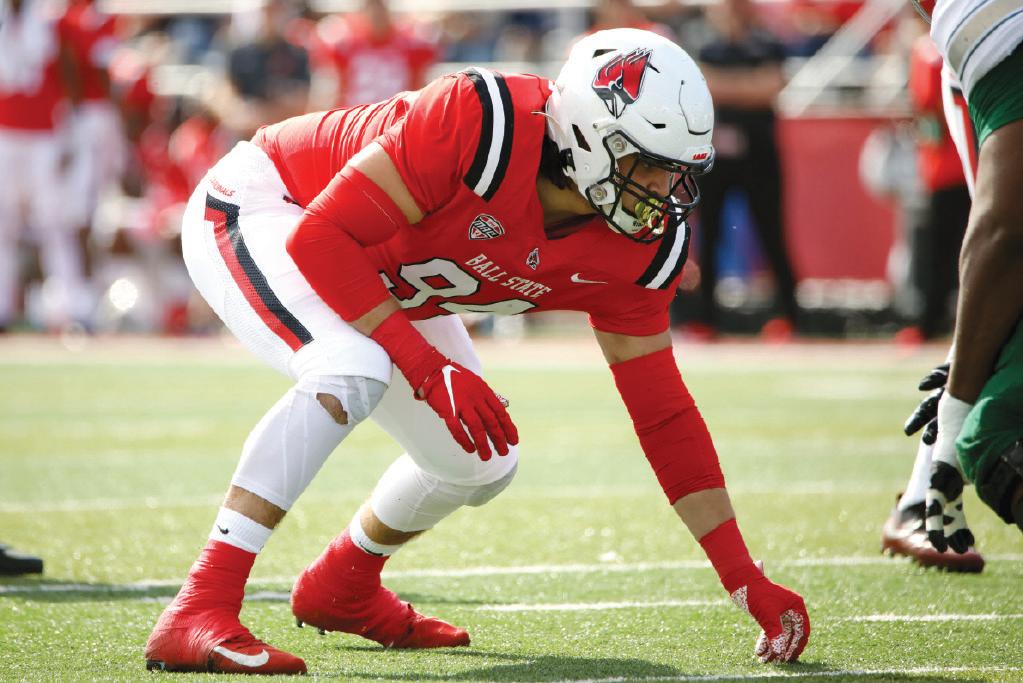
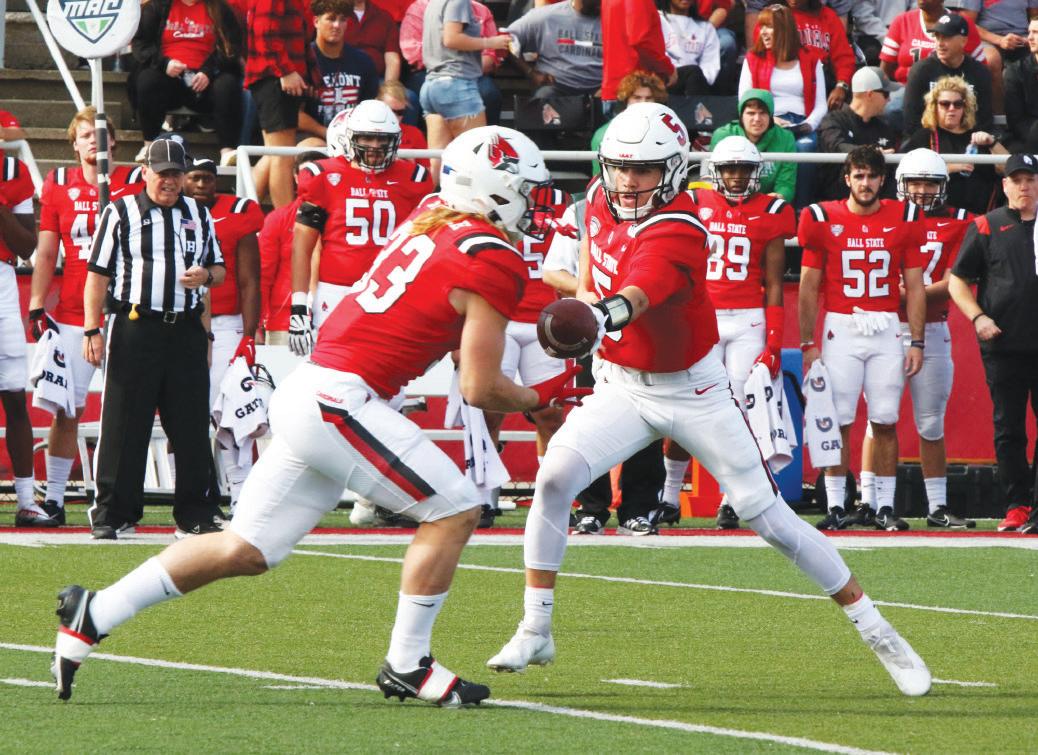
After playing together in high school, John Paddock and Jack Sape are in their ninth year of playing football togetherContact Daniel Kehn with comments at daniel.
I think it’s definitely been something where we can just lean on each other … if we ever need anything.”
- JOHN PADDOCK, Ball State quarterbackSenior defensive end Jack Sape runs with the football in a game against Athens High School Sept. 22, 2017, in Bloomfield Township, Mich. SUSAN ADAMS, PHOTO PROVIDED Redshirt junior quarterback John Paddock (right) hands sophomore running back Carson Steele (left) the ball during the homecoming game against Eastern Michigan Oct. 22 at Schuemann Stadium. EMMA MATLOCK,DN Redshirt junior defensive lineman Jack Sape prepares for the ball to be snapped in Ball State’s homecoming game against Eastern Michigan Oct. 22 at Scheumann Stadium. Sape had two total tackles during the game. AMBER PIETZ, DN
shape of my life, and to get that taken from me and gaining back 20 pounds, having to work through that, has been really, really hard.”
Clephane tore her ACL her freshman year at Ball State as well. She said having gone through the rehab process mentally and physically before helped her and hurt her at the same time, as she was familiar with the tasks but also knew how much work had to be done.
Kyle Smedley News Editor“Five points better,” Brady Sallee, Ball State Women’s Basketball head coach, said.
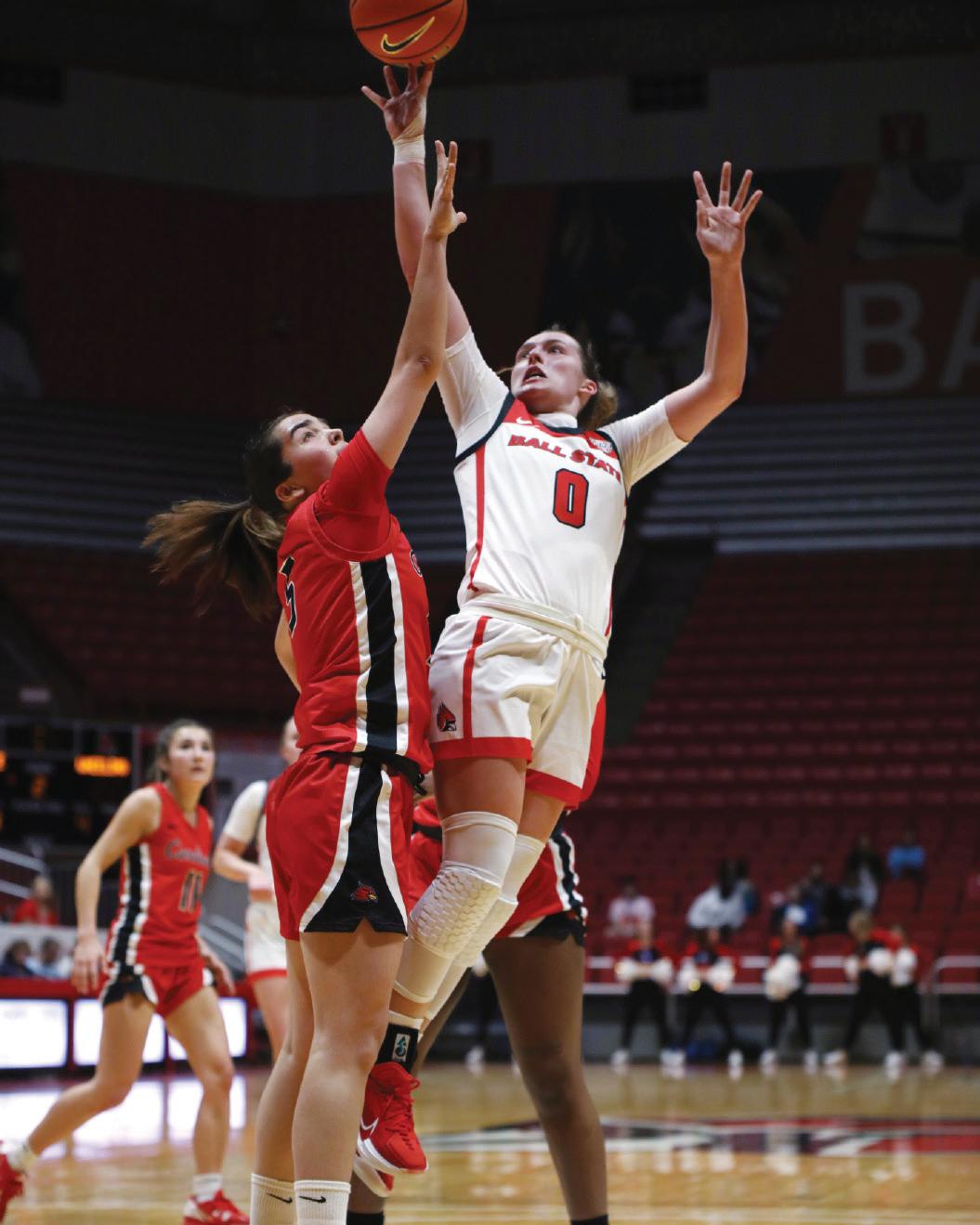
“Five points better,” Anna Clephane, redshirt senior, said.
“Five points better,” Annie Rauch, senior, said.
“Five points better,” Ally Becki, sophomore, said.
It’s the mantra Ball State’s coaching staff and players alike have been repeating throughout the offseason.
“It’s almost an everyday thing,” Becki said. “We have t-shirts, it’s in our locker room and I think getting that put in our heads and wanting to compete every day for it [is good]. I know some of the newcomers don’t know what it was like, but we can speak for some of the returners, and having that feeling after that loss is heartbreaking. It sucks, but we have to get over it now.”
When time expired and the buzzer sounded in Cleveland, Ohio, at the end of the championship game of the 2022 Women’s Basketball MidAmerican Conference (MAC) Tournament, the scoreboard read 79-75.
As the Buffalo Bulls cut down the nets and punched their ticket to the National Collegiate Athletic Association (NCAA) Tournament, the Ball State Cardinals were left heartbroken and thinking of what could have been.
I can’t remember a year where I’ve had a harder time coming up with, ‘Here’s gonna be my five, here’s gonna be my eight, here’s gonna be my nine.’ You mention the Ally’s, the Marie’s [Kiefer] and the Thelma’s, but you move down the line, and there’s just not any drop off.”
five points, then that’s a whole championship,” Clephane said. “I think we’ve made that apply to more than just five points, it’s in everything. It’s in that defensive slide, it’s in that hand-off, it’s in that relationship off the court, it’s being a little better in every aspect of our team, not just the scoring.”
In the offseason, Sallee said he has rewatched the MAC Championship loss over and over again, wanting to use the heartbreak of a runner-up finish to propel Ball State towards success.
He said there were about three plays that cost them the game, and those mistakes shouldn’t have happened, adding that the loss was slightly selfinflicted and came down to communication and execution errors.
For the upcoming campaign, the Cardinals return seven players from the 2021-22 season, while adding five.
Some are coming off a successful individual season, such as Becki, who was named to the MAC All-Third Team and MAC All-Freshman Team in 2021-22 and has been predicted to earn MAC All-First Team honors in 2022-23. Some are staring down the task of playing in their first ever collegiate-level sporting event.
Some are returning from a career-threatening injury.
In the past, Sallee has made a point not to dwell on losses. This one was different.
“I think that hits a little deeper when you put it into an actual point perspective, and if it were just
In a recent preseason coaches poll and AllMAC teams announcement, Ball State is projected to finish second in the conference in 2022-23, receiving one of 12 votes to finish first. The Cardinals received three of 12 votes to win the MAC Championship Tournament.
Clephane wasn’t on the court with the Cardinals when they made their run to the MAC Championship game. Instead, she was sitting courtside wearing a knee brace.
Jan. 9, against Kent State University, Clephane tore her ACL and meniscus, sidelining her for the rest of the season.
“It was really tough mentally, it was really tough physically,” Clephane said. “I was in the best
I think that hits a little deeper when you put it into an actual point perspective, and if it were just five points, then that’s a whole championship. I think we’ve made that apply to more than just five points, it’s in everything. It’s in that defensive slide, it’s in that hand-off, it’s in that relationship off the court, it’s being a little better in every aspect of our team, not just the scoring.”
- ANNA CLEPHANE, Redshirt seniorClephane knows her time as a Cardinal is limited. Not only is she coming off the second major injury of her collegiate career, but this is her final year of eligibility.
“Last time I had a torn ACL, it almost took an entire season to get back to where I was, and that can’t be it anymore. I don’t have a whole season to waste,” Clephane said. “I’ve been getting myself in the mindset to get back to where I know I can be as quick as possible without risking anything, so it’s been a battle. Each day is a little different.”
When Clephane was officially released for practice, she said she was a little tentative at first. However, she remembered stepping on the court and catching herself off guard as she went full speed ahead right out of the gate.
That approach is indicative of her approach to the 2022-23 campaign in general.
“Anything I got left is getting poured into this season, whatever I have left you’re going to see it on the court,” Clephane said. “I think that’s huge for me, and that means more than any injury for me.”
Along with Clephane, senior Estel Puiggros tore her ACL last season. However, she did so in the second round of the MAC Championship Tournament, a win against the No. 1 seed University of Toledo.
Sallee said there is no goal or set timetable for Clephane and Puiggros’ respective returns. He said while Clephane has been cleared to practice and Puiggros isn’t quite there yet, their return to in-game action is dependent on how they feel physically and mentally.
Different from the past, Ball State Women’s Basketball is dwelling on their disappointing end to last season, using it to drive them
- BRADY SALLEE, Ball State Women’s Basketball head coachSophomore Ally Becki goes for a basket in an exhibition game against Wheeling University Nov. 1 at Worthen Arena. AMBER PIETZ, DN









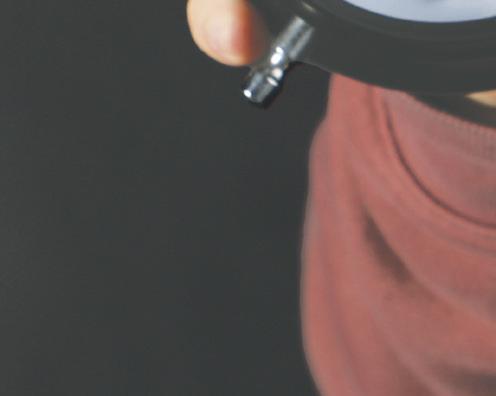


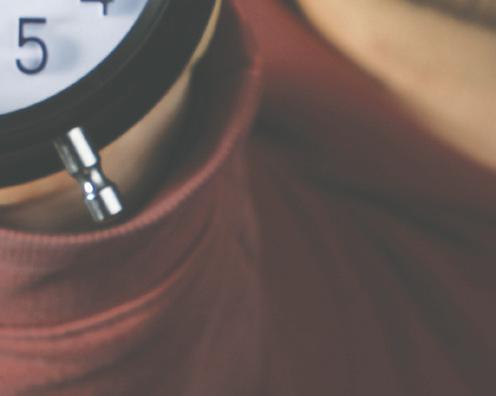


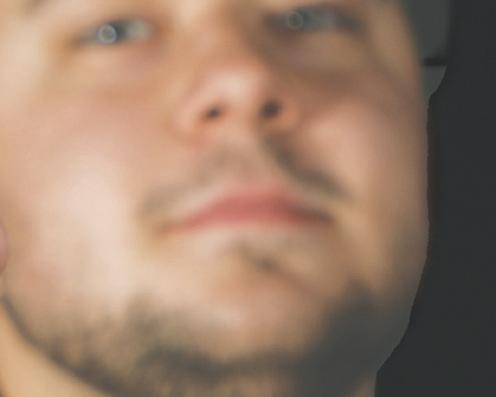

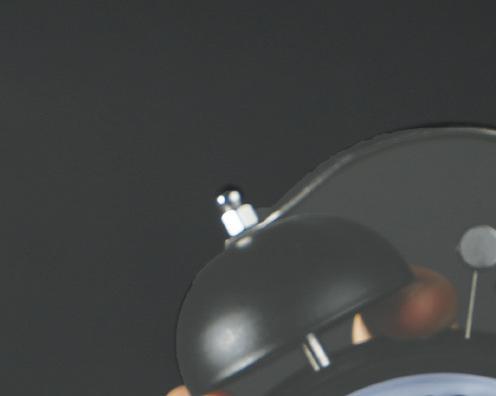





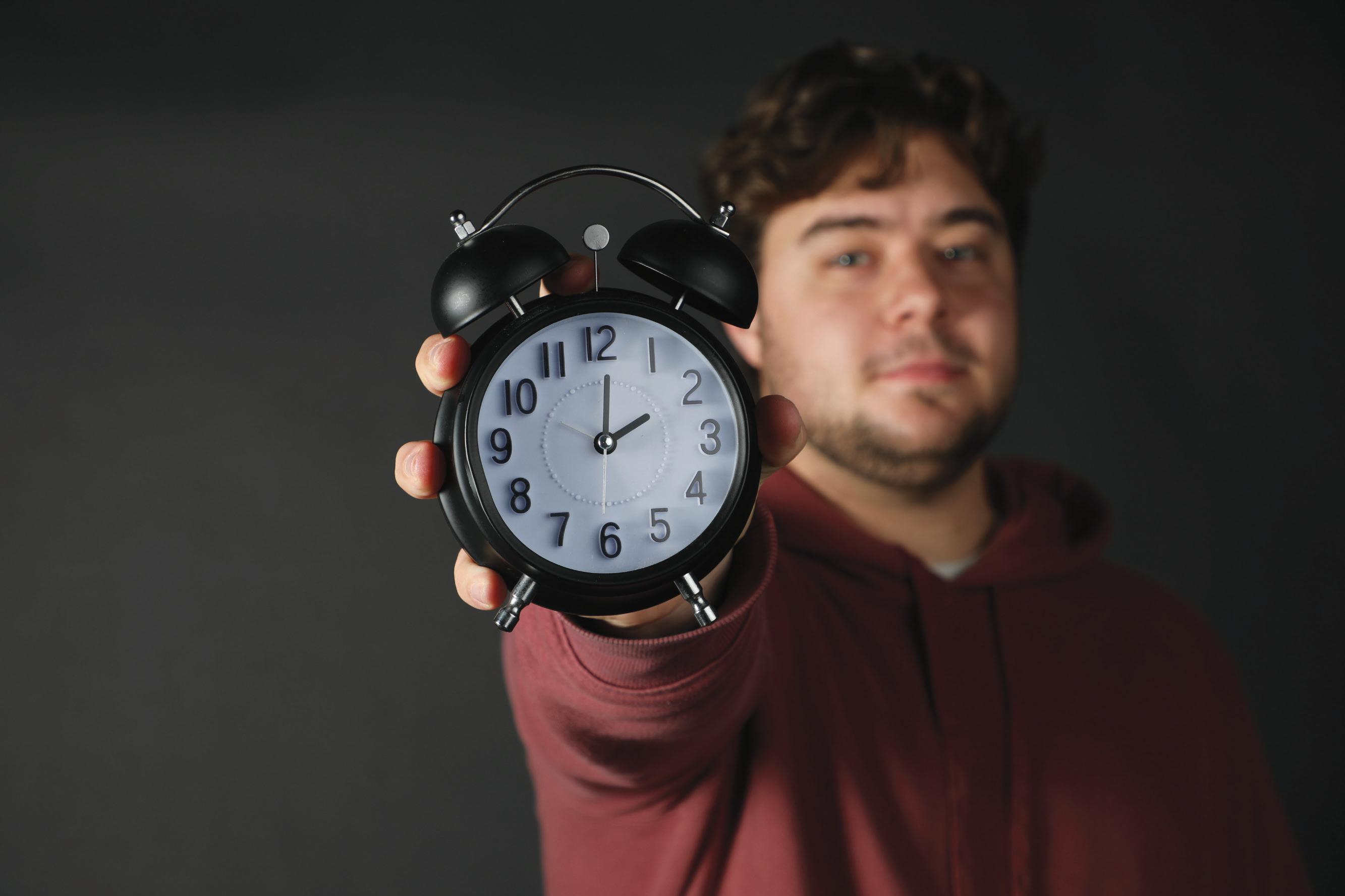
Welcome to 2 a.m. on my Monday morning.
There are articles to edit, a budget to reorganize, stories to set up for the sports section, stories to write, my duties as a resident assistant (RA) and podcast episodes to prep for, all before I even glance at my academic work.
I’ll get it done though; just maybe a few less hours of sleep this week.
It will be okay. I’ll be okay.
Here’s what perplexes me sometimes though: I would rather this be my everyday routine than not have anything to do for the week. I mean, sure, relaxation is a great feeling for the moment, but then what happens? If I take the night off, lounge around my room and get too comfortable, I’ll start to lose pace; it’s a spiral I’ve met before and have been running from ever since.
After reading my colleague Olivia Ground’s opinion piece on Hustle Culture, I was a little taken aback.
Everything they said made sense, but in my mind, it all felt a little too simple. Yes, it’s important not to pack your schedule, to make time for yourself and join clubs for enjoyment rather than a résumé bullet point, but it has never clicked like that in my head.
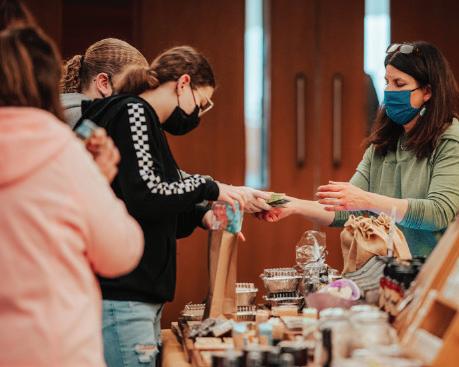
As the youngest of six kids, I grew up in a busy household and followed suit with my siblings. I was heavily involved in Boy Scouts, soccer and student government, just to name a few. There was not a day when I would leave school and go straight home; those were few and far between. I loved my childhood, and I am extremely glad that my parents pushed me to do a lot; it allowed me to learn how to juggle a schedule. The lifestyle also taught me the importance of experience, as I now look for new opportunities to jump on whenever I can.
But in my senior year of high school, things got slow for me. My time playing sports was over, and everything began wrapping up as my childhood was coming to a close. As a result, I found myself sleeping in, showing up late to school and spending all my time in my room, in bed, not able to do anything productive for myself.
I was depressed. I was scared of the future. I just wanted to stay safely on the precipice of adulthood for as long as I could.
Now, it’s 2:32 a.m., and I still feel like I am avoiding getting in bed. As if I’m scared I’ll wake
up in a month and be back at the bottom of the downward spiral, even after being in college for more than a year now.

When I arrived at Ball State in the fall of 2021, I was determined never to be back in that downward spiral again.
In my first week, classes were the only thing I had to do each day before heading back to my dorm, and I needed to change that quickly.
I joined the Ball State Daily News and made it my goal to spend as much time in the newsroom as possible, soaking up all the experience I could and doing as much as they would let me through the end of the semester. I liked leaving early in the day, hitting up class and then going to the newsroom before getting back home late. Not being in my room, not being in my bed, instantly made me feel more productive.
much as I should have or dedicated enough hours to my craft — so I moved back home and worked the 5 a.m. shift at a golf course, leaving my day over before the afternoon sun had even begun its descent.
I hated that feeling. I had too much time in the day, and the unproductive eight-hour shift of moving cups on greens did not feel like something I could count as fulfilling. I got home exhausted but felt guilty I had not done enough legitimately productive work.
Now, I am an RA, the sports editor of The Daily News, co-host of two podcasts and starting a new relationship with an amazing person.
My schedule is filled to the brim, my life is busy and that’s just how I like it — I think. Could the new responsibilities in my life be leading to new insecurities?
tomorrow, but that’s okay, I guess. My sleep schedule is out of wack, I think too much and eat and drink inconsistently. I am overweight, I should hit the gym; but I have no motivation to do anything outside my laundry list full of tasks, just enough homework to get by and spend downtime with my partner in hopes of recouping some energy.
My nature will still call me to jump at opportunities to start a new project, like writing a story, this story, for the opinion section, getting interviews on a news story or getting started on a lifestyle piece while working on two or three sports stories.
I feel the need to branch out, expand my ability and stay busy. It’s like I am addicted to having another thing to do when I am done with the current project.
I am burning out.
It’s barely November and my foundation is cracking. The hours of excess and unbalances are leading to a new spiral that, if not mended soon, will run me right into what I have been running from.
Whatever I am trying to outrun, it’s not something that I can control by spending an extra hour in the newsroom or taking on another project.”
To be very clear, I don’t disown working hard, and I believe that so-called “hustle culture” is a good idea in theory. I think every person should be working as hard as they possibly can at the things they are most passionate about; however, there needs to be equal balance.
I don’t like getting home too early; I always find myself in bed on my phone or watching TV if I have too much time in the afternoon. It makes me feel gross. I immediately begin to ponder negative thoughts about my lackluster talent as a journalist, why my friend got an internship and I didn’t, anxiety about whatever to-do list item I am gaslighting myself into thinking I forgot to get done or the fact I should go for a run – I could lose 20 pounds or so.
In my second semester at Ball State, I joined NewsLink Indiana and started a podcast with a new (and now good) friend, Andy Newman. I was filling out my schedule more and more, running from an early day home and an empty to-do list.
Then summer came, and it all came crashing down.
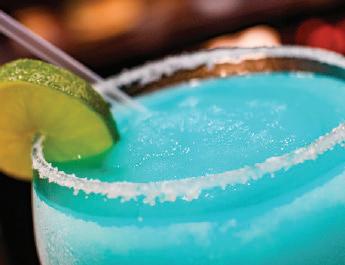
I didn’t get any of the internships I applied for — what I only saw as a sign I didn’t develop as
I feel as though I am working to prove I belong, to prove I deserve my position, that I can handle the workload my goals require and that I can work without looking at the clock. Most of all, to prove to the 18-year-old version of myself that I am getting better and better every day, and I am not going to end up at the end of the spiral again.
I may not be getting in bed too early, but I may be doing more harm than good.
It’s now 3:15 a.m., my head sags slightly and my eyes continue to fill in weight as I chisel away at the keyboard.
There’s a good chance I will sleep through NEWS 233 (sorry Kate!); I have to finish this. It’s probable I am going to have to rewrite some of this on deadline, it doesn’t matter, at least I will have been working extra hours.
I have a headache, I’ll have one all through
It’s 3:35 a.m., and I have a new goal. Not to amass more but to handle what I have. The chances to do more will pass, but I have come to terms with the fact that I need my life to balance out. Working hard and dedicating hours is fine, but moderation is key.
I’m still learning to put my words into action, but the first step for me was taking the day off and going to the Homecoming game with my parents and my partner before going out to dinner.
I hadn’t seen my parents together since I left for school in August, and I would’ve missed that if I was in the press box trying to add another game to my résumé.
Whatever I am trying to outrun, it’s not something I can control by spending an extra hour in the newsroom or taking on another project.
3:45 a.m., laptop closed, in bed. It’s fine. You’ll be okay.
Contact Daniel Kehn with comments at daniel. kehn@bsu.edu or on Twitter @daniel_kehn.
Sallee finished by saying when they return, it’ll be “like Christmas early.”
Freshman Hana Mühl, freshman Ana Barreto, senior Sydney Shafer, freshman Sydney Bolden and sophomore Alex Richard.
Sallee said this is one of the strongest recruiting classes he has ever had talent-wise. He said oftentimes he is excited about a class on paper, but once they come to Ball State, his expectations are dampened. This season, he said he has been thrilled with all five newcomers.
Sallee said he believes the Cardinals are in a better place than they ever have been depth-wise going into the 2022-23 season, adding he doesn’t see a way where all 12 players don’t see the floor.
“I can’t remember a year where I’ve had a harder time coming up with, ‘Here’s gonna be my five, here’s gonna be my eight, here’s gonna be my nine,’” Sallee said. “You mention the Ally’s, the Marie’s [Kiefer] and the Thelma’s, but you move down the line, and there’s just not any drop off.”
Becki said the talent-level of the five newcomers has increased competition during practice.
“You can’t really have a bad day in practice because everyone is talented and everyone has their special role,” Becki said. “If you have a bad day in practice, it’s hard to come back because everyone is competing for a spot, and you just have to show up and be your best.”
Last season, Sallee introduced the Cardinals to a new offensive system, including going positionless, meaning no more labels such as guards, forwards
and centers. All involved said it has been beneficial to have this system under their belt for a full season, with Sallee saying the coaching staff was able to specifically recruit to fit this system, and those who were with Ball State last season know the system even better now.
Although Rauch is a senior, she still has one more year of eligibility and plans to use it. As someone who is in their fourth year in the program, Rauch is using her experience and leadership, vocal or not, to help the Cardinals’ new additions realize what’s expected of them and teach them the culture.
Clephane said while the offseason was dominated by her recovery process for her torn ACL, she also took significant time to get to know the five newcomers.
“It’s been a ton of rehabbing and regaining my confidence and trying to find myself as a new player after the second surgery,” Clephane said. “It’s also been a lot of being with my new teammates and finding our identity as a team. It’s been really interesting, I mean, this team is something special, and I’m excited to let everyone see.”
Becki talked about how close the Cardinals are on and off the court, mentioning team trips to places like Indy Screampark. She said there are no cliqués on the team, and everyone seems to enjoy being around each other, allowing for trust to be built.
Rauch said creating these off the court bonds between teammates she has only known for months and those she has known for four years is what helps make the Cardinals successful on the court.
“It’s just about making relationships that are going to last a lifetime, and being able to go out on the floor and do what we came here to do together, I think is a huge deal,” Rauch said. “It pulls on my heartstrings because we’ve been together for so long.”
Culture has been a large talking point for the Cardinals going back to last season, as Sallee and
the players take great pride in what they’ve built behind the scenes. The biggest aspect of Ball State’s culture for Sallee is the distinction between newcomers and returners.
“I think they learned a really good lesson last year that there is a difference in roles on a team, but there’s not a difference in status on a team,” Sallee said. “... This last year, we learned when you have a team without status and everybody will buy into their roles, there’s an impact made by everyone.”
The biggest goal of the season is clear: be “five points better” and win the MAC Championship. Clephane said the team not only wants to win the MAC Championship Tournament but also be MAC Regular Season Champions.
She said the Cardinals want to “win big” against the teams they know they should beat and beat or stay close with the teams they know will be tough. Clephane said it’s about creating the gap between the teams they know they’re better than and being consistent in their play, no matter the competition.
Sallee said some specific goals are to decrease turnovers, increase three-point proficiency and make more shots offensively. On defense, Sallee said he wants the team to play like a motivated unit.
Additionally, Sallee said another goal is for more of the players to lead vocally as he feels almost every person on the team leads with their actions, but he wants to see more out of those who are less vocal. Rauch, Ball State’s ‘Enforcer,’ said a goal for the Cardinals is to do a better job communicating.
Personally, Rauch hopes to shoot more threes and be more successful in those increased attempts. Becki’s biggest goal is to improve her assist/ turnover ratio.
Before her injury, Clephane was averaging a career best 16.2 points per game. Now, Clephane said she wants to be on the MAC All-Team lists.
Her most important goal, however, is regaining her confidence.
“[I want to] regain my confidence and become the player I know that I can be,” Clephane said. “I want to show myself and everyone else that I’m
still here and I can still do it. If that means that I’m dropping 15 a game, if that means I’m dropping a couple a game and helping my team out off the bench, I’m good with that. I just want to be able to contribute what I have to contribute.”
While Sallee said he believes the Cardinals have the talent and depth to achieve these goals, the effort and mentality has to be there for Ball State to achieve success. That’s why he’s pounded in “five points better” ad nauseam, that’s why he’s choosing to dwell on the heartbreak of last season.
“The buy-in to those things is going to be what’s critical,” Sallee said. “Everyone is capable. We don’t have any issues, we don’t have any shortcomings, we don’t have anything that way. It really becomes, how deeply are we really willing to buy-in to the things that we know matter?”
The Cardinals defeated Wheeling University 8340 in an exhibition contest Nov. 1. Ball State’s first game of the regular season is set for 6 p.m. (7 p.m. CT) Nov. 7 when the Cardinals take on Tennessee Tech University in Cookeville, Tennessee.
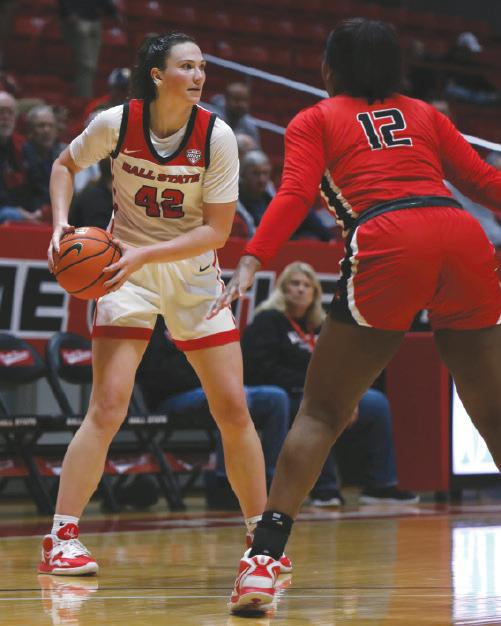
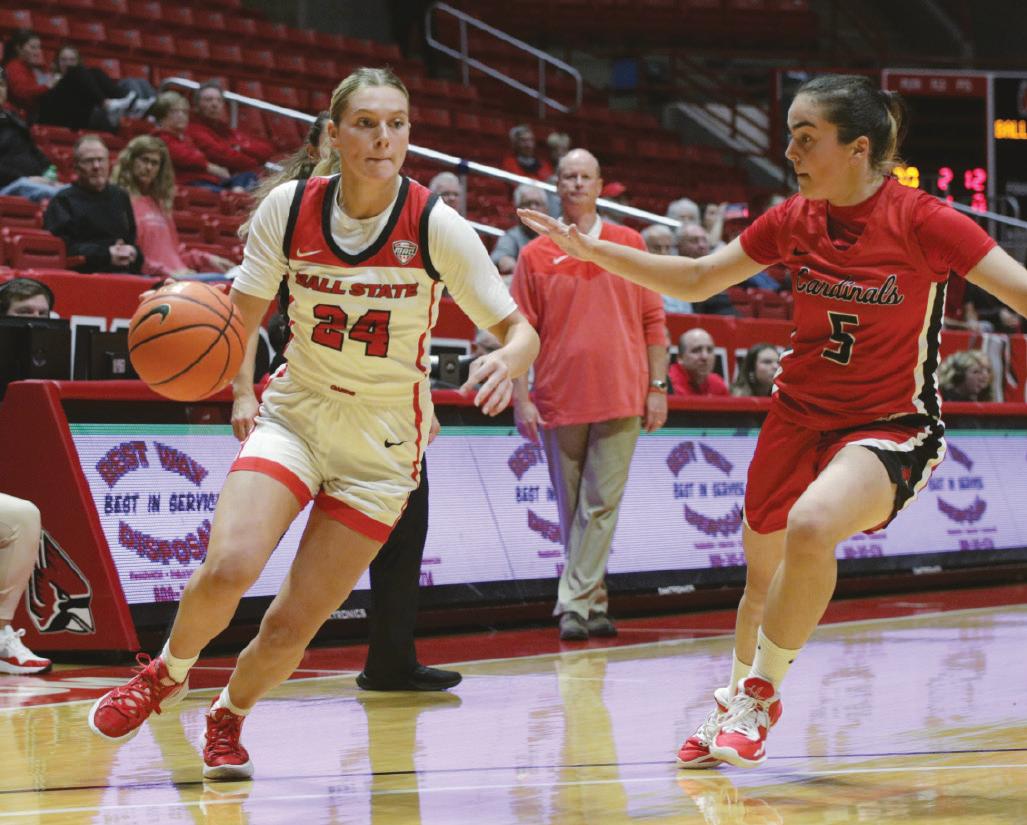
Contact Kyle Smedley with comments via email at kyle.smedley@bsu.edu or on Twitter @ smedley1932.
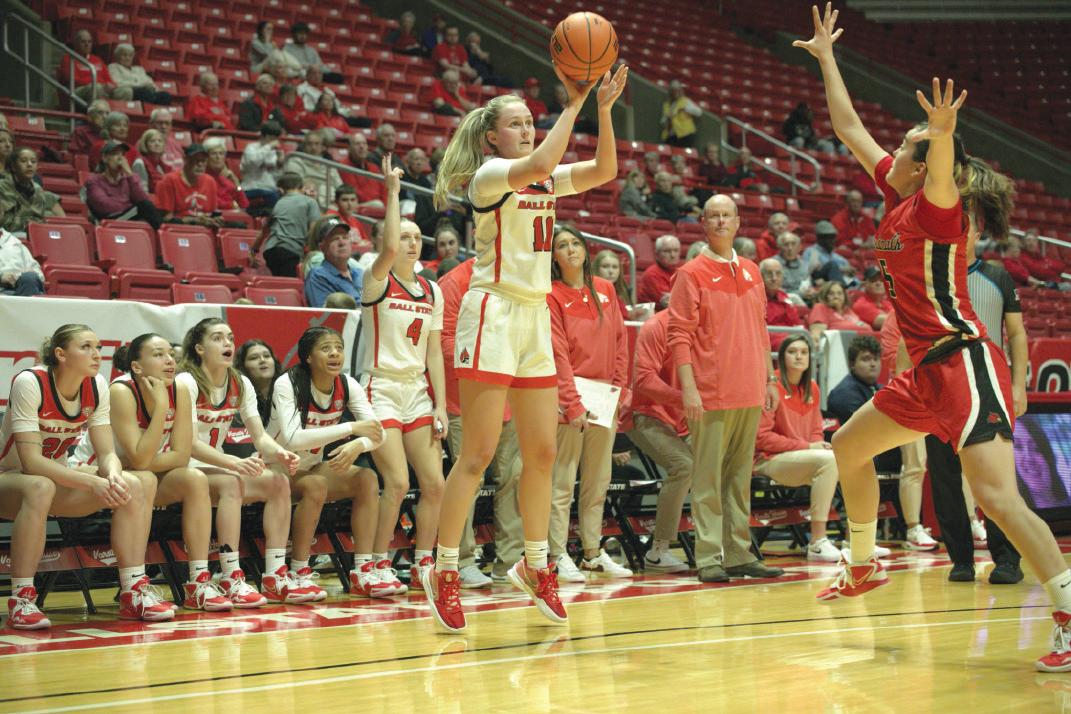



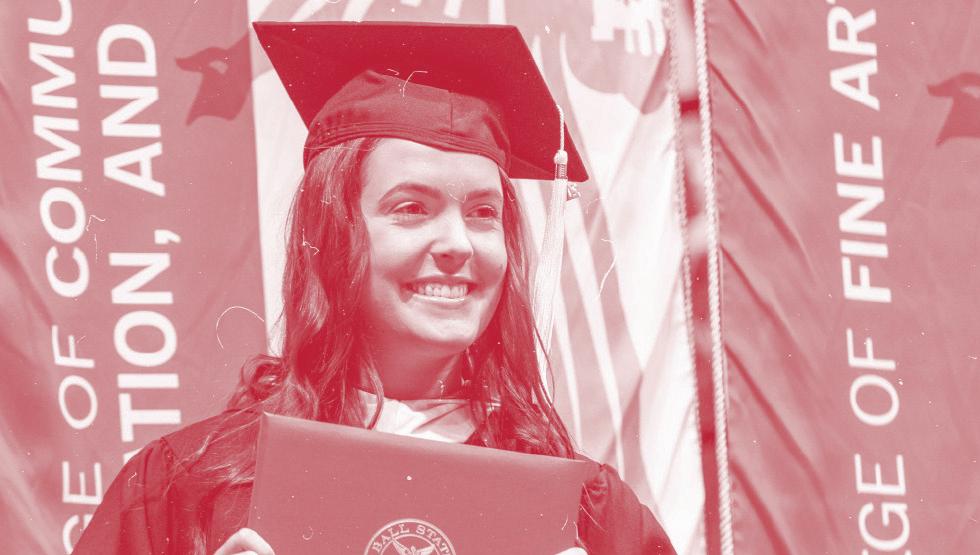
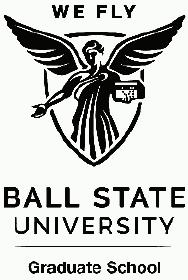

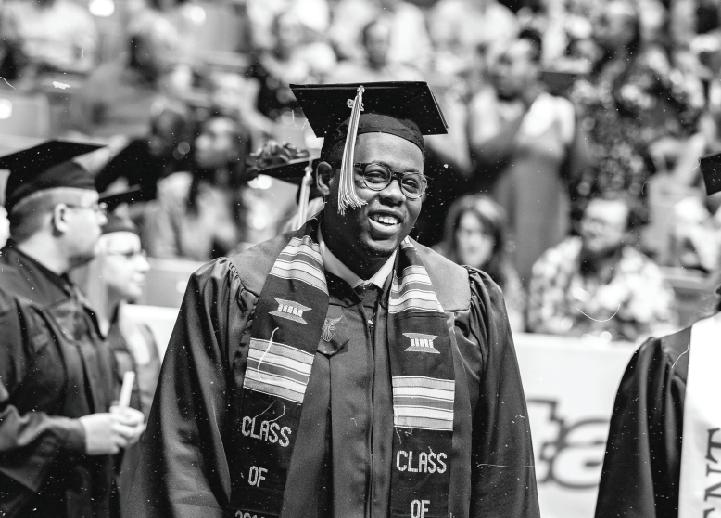
By:
